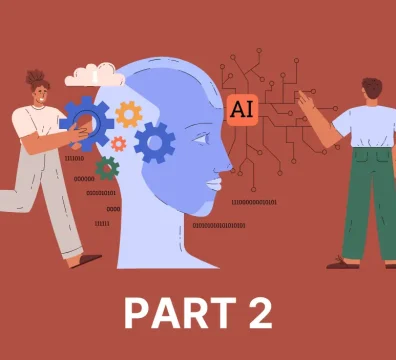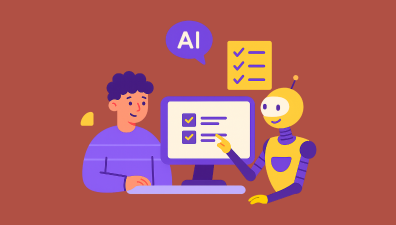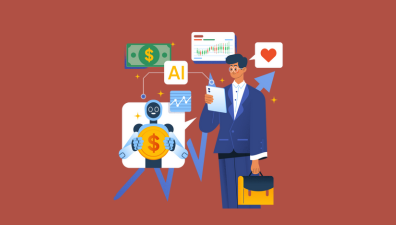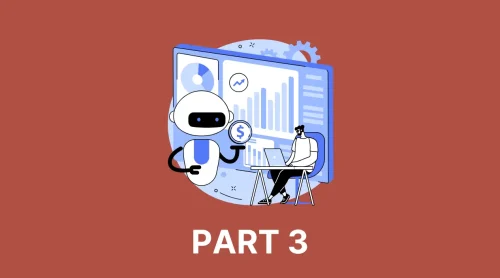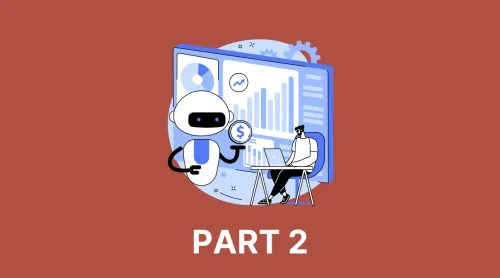This opening part lays the groundwork for understanding how AI for B2B reshapes the future of enterprise operations. It defines the meaning of AI in B2B eCommerce, distinguishing it from general-purpose and consumer AI. Unlike B2C, B2B requires AI systems that handle long decision cycles, multi-stakeholder deals, and high-value transactions with precision. The discussion extends to why B2B organizations need AI—to manage complex supply chains, unify disconnected data, and transform decision-making across marketing, sales, and operations.
From predictive lead scoring to AI-driven customer service, this part details the core applications of AI in B2B functions. It explores how marketing teams deploy AI for account-based personalization, how sales teams use predictive analytics for opportunity management, and how customer service integrates virtual agents to deliver real-time support. It also examines AI’s role in supply chain management and sector-specific applications in manufacturing, finance, healthcare, and SaaS. Collectively, these examples highlight AI’s capacity to create precision, insight, and scalability in environments defined by complexity. To see how these principles become real-world success stories, continue to Part 2: Real-World Case Studies & Success Stories, and for a forward-looking perspective on implementation and strategy, visit and discover Part 3: Strategy, Challenges, and Future Trends.
Table of Contents
Understanding AI in the B2B Context
AI for B2B is reshaping the way enterprises operate, compete, and grow in an increasingly complex business environment. While artificial intelligence has been widely discussed in the consumer space, its adoption in the business-to-business landscape requires a unique perspective. Unlike B2C, where transactions are often simple, fast, and emotional, B2B markets are characterized by longer sales cycles, higher transaction values, multi-stakeholder negotiations, and deeply interconnected supply chains. These differences make AI for B2B not just a helpful tool but a critical enabler of efficiency, personalization, and innovation.
What is AI in B2B eCommerce?
AI for B2B eCommerce refers to the application of artificial intelligence technologies in digital business-to-business platforms, processes, and interactions. While general AI focuses on simulating human intelligence for broad tasks like recommendation engines, chatbots, or image recognition, AI for B2B eCommerce is specifically designed to address the complex, data-heavy, and multi-stakeholder nature of B2B environments.
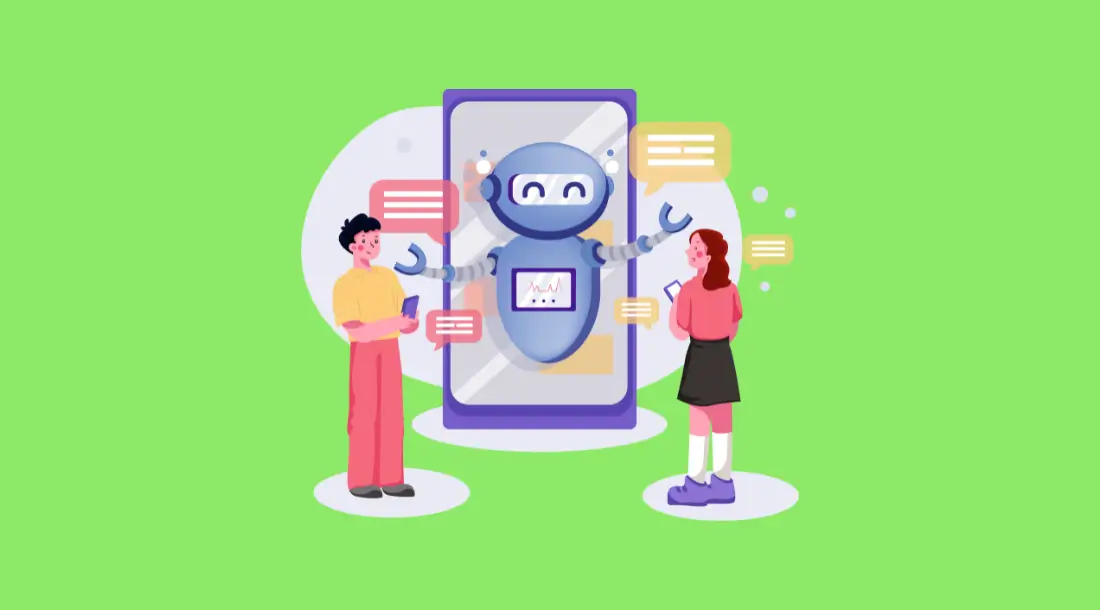
Unlike B2C, where AI often powers instant product suggestions or personalized marketing for individual customers, AI for B2B must consider larger transaction values, extended sales cycles, compliance requirements, and sophisticated buyer–seller relationships. It is not just about optimizing short-term conversions, but about enabling sustainable partnerships, streamlined procurement, and efficient digital commerce ecosystems.
Definitions tailored for B2B vs general AI use cases
AI for B2B eCommerce refers to the application of artificial intelligence technologies specifically within digital business-to-business environments, where transactions, negotiations, and operations differ fundamentally from consumer markets. While general AI use cases often focus on personalizing shopping experiences, powering recommendation engines, or automating quick consumer interactions, AI for B2B is tailored to longer deal cycles, larger transaction volumes, and multi-party decision-making processes.
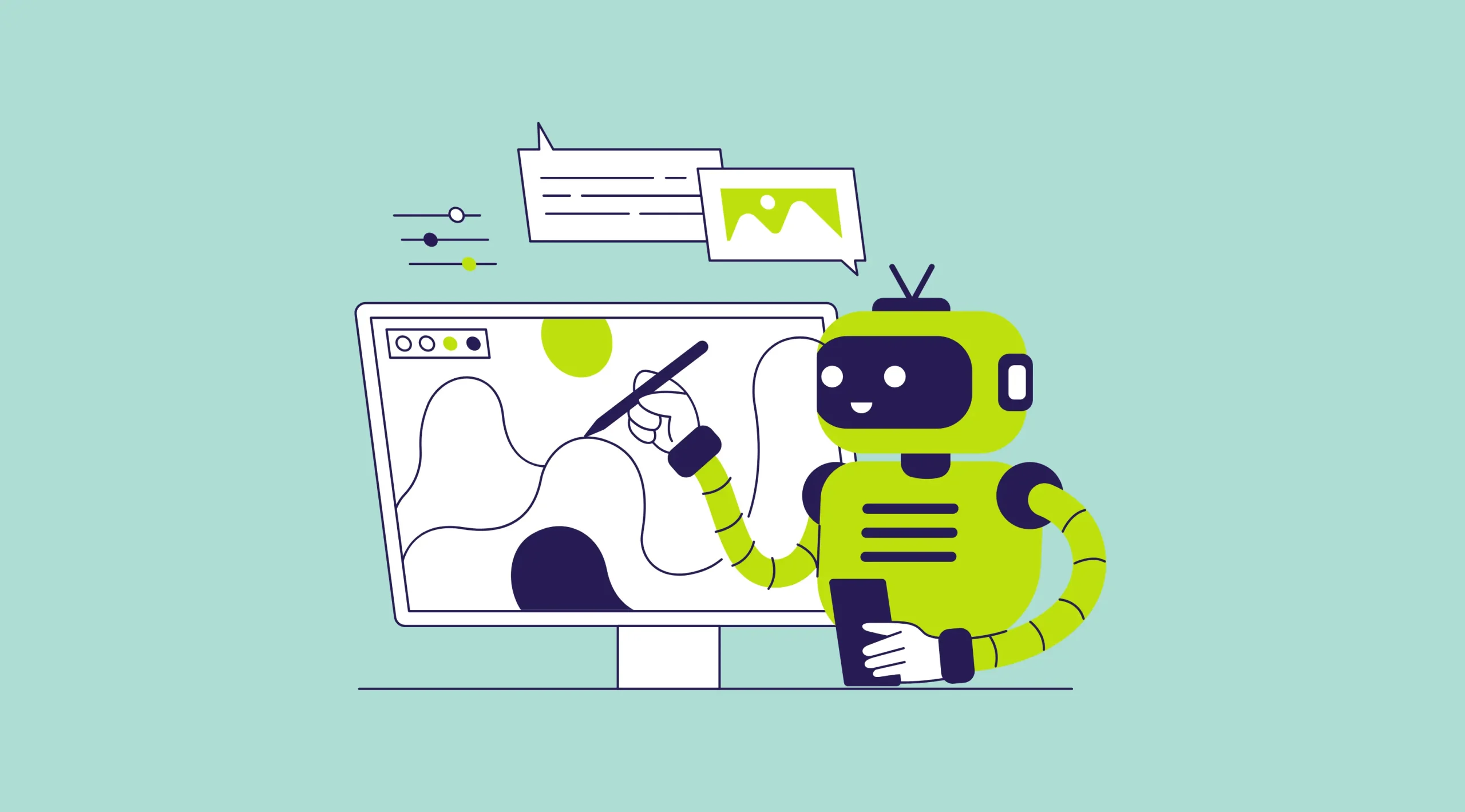
In B2C contexts, AI might predict what an individual shopper wants based on browsing history. In contrast, AI for B2B must evaluate enterprise-wide purchasing behaviors, contract terms, supplier histories, and global demand trends. Its definition includes the ability to not only analyze structured data like invoices, purchase orders, or inventory levels, but also unstructured information such as client communications, market reports, and regulatory updates. This tailored approach makes AI for B2B a strategic enabler that balances efficiency, foresight, and relationship management across complex commerce systems.
AI applications for workflows, data-driven decision-making, and relationship management
Workflows in B2B are inherently complex and often bogged down by paperwork, compliance checks, and departmental approvals. AI for B2B automates repetitive tasks such as invoice reconciliation, supplier evaluation, and contract validation. By embedding intelligent automation, companies streamline workflows, reduce human error, and accelerate transaction speed.
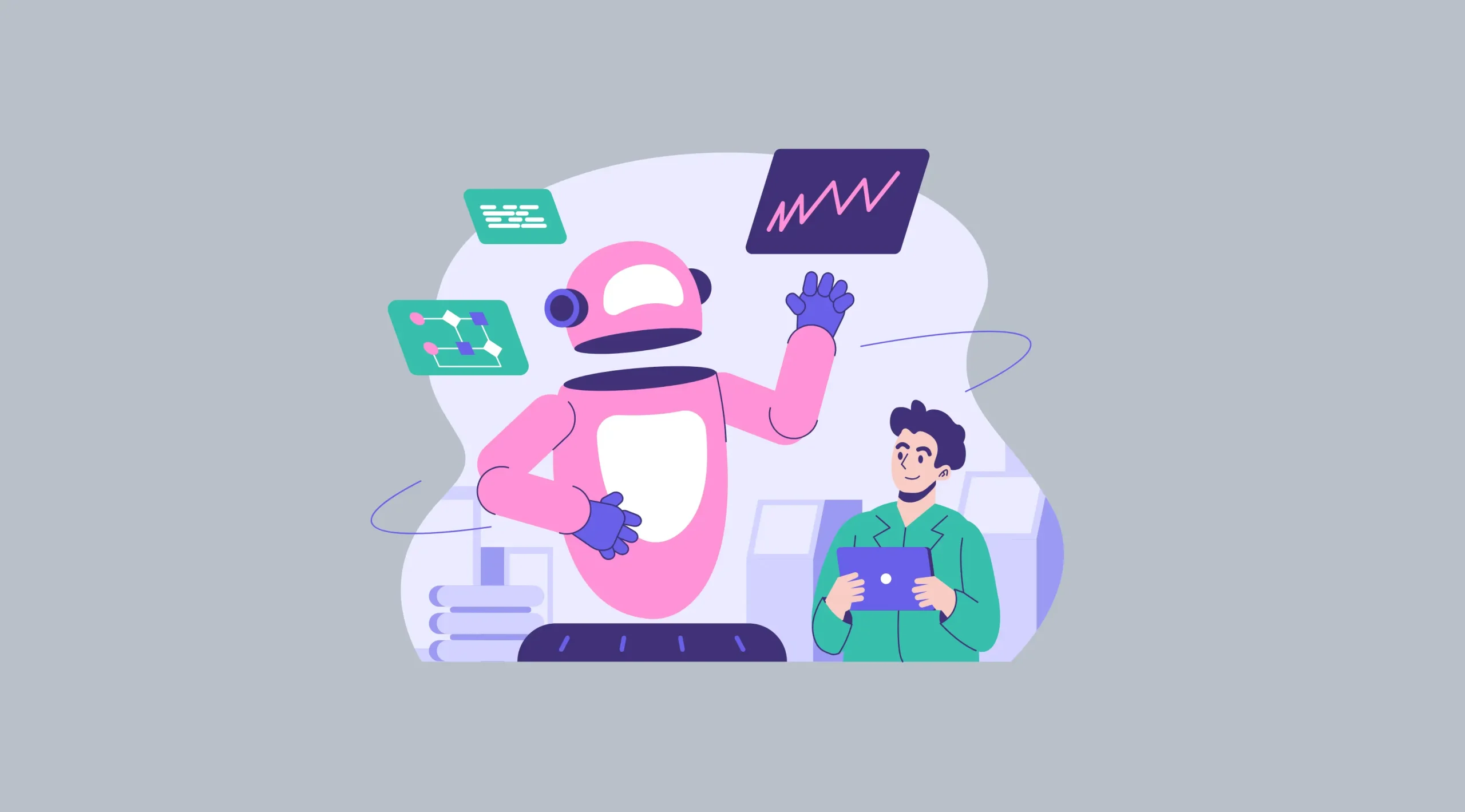
Data-driven decision-making is another pillar of AI for B2B. Enterprises collect vast amounts of data from ERP, CRM, logistics, and financial systems. Traditional tools fail to unify this information, but AI for B2B uses predictive analytics and machine learning to extract actionable insights. It can forecast demand, highlight high-value leads, optimize inventory placement, and predict market shifts before they occur.
Relationship management is perhaps the most strategic application of AI for B2B. Unlike consumer interactions, B2B relationships are long-term and require consistent trust. AI-powered CRMs analyze sentiment in communications, map decision-making hierarchies, and suggest tailored engagement strategies for each stakeholder. This ensures that companies not only maintain relationships but also strengthen them over time, leading to higher retention and lifetime value.
Why B2B Needs AI
The demand for AI for B2B has accelerated in recent years as enterprises confront an increasingly complex landscape of operations, customer relationships, and market competition. Unlike consumer markets, where a single purchase decision can be made within minutes, B2B transactions are multi-layered, strategic, and often extend over months or even years.
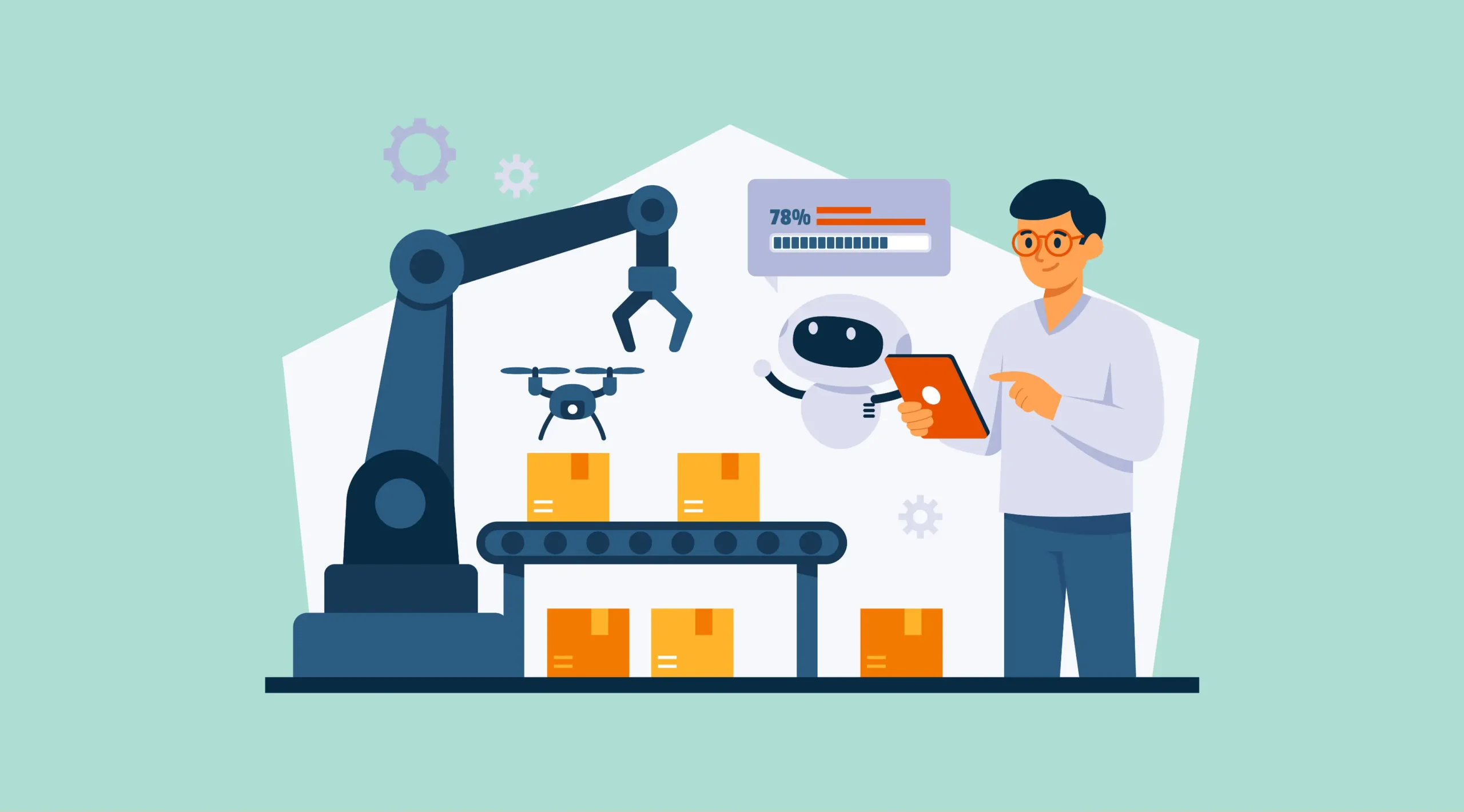
This environment creates unique challenges that cannot be solved by traditional methods alone. AI for B2B is emerging as the key enabler that allows organizations to cut through this complexity, generate actionable insights, and build the agility required to compete in a fast-changing world.
Complexity of supply chains, longer sales cycles, multi-stakeholder deals
Supply chains in B2B are global, fragile, and often disrupted by external shocks such as geopolitical tensions, natural disasters, or sudden shifts in demand. AI for B2B integrates predictive analytics to anticipate disruptions, optimize logistics, and manage inventory dynamically. This reduces costs and ensures reliability, which is critical in multi-tier supply chains.

Sales cycles in B2B are lengthy, often spanning months or even years, and involve a sequence of evaluations, negotiations, and approvals. AI for B2B addresses this by providing predictive lead scoring, identifying accounts most likely to close, and suggesting optimal timing for engagement. This intelligence shortens cycles and allows companies to allocate resources more efficiently.
Multi-stakeholder deals complicate decision-making further, with procurement officers, technical teams, finance managers, and executives all weighing in. AI for B2B uses natural language processing and communication analysis to map these networks, detect pain points, and recommend strategies for influencing each stakeholder. The result is smoother negotiations and higher close rates.
Competitive pressure and the role of AI in gaining efficiency and insights
Competition in B2B markets is fierce, amplified by globalization and digital transformation. Companies must operate with greater efficiency while also uncovering strategic insights faster than rivals. AI for B2B enhances efficiency by automating resource-intensive processes like compliance reviews, order processing, and supplier evaluations. It reduces errors, cuts operational costs, and speeds up workflows.

Equally important, AI for B2B turns data into a competitive weapon. By analyzing vast enterprise datasets, it identifies patterns invisible to human analysts, predicts market trends, and guides long-term strategies. A company using AI for B2B can anticipate changes in demand, prepare for disruptions, and innovate more quickly than competitors who still rely on intuition and static reporting. In a marketplace defined by thin margins and constant disruption, this combination of efficiency and foresight gives early adopters of AI for B2B a decisive edge.
Core Applications of AI in B2B
AI for B2B is no longer confined to theoretical discussions or isolated pilot projects. Across industries, enterprises are embedding AI capabilities directly into their marketing, sales, customer service, and supply chain operations. These applications are transforming how businesses approach clients, manage relationships, and optimize operations. The true power of AI for B2B lies in its ability to integrate intelligence across the value chain, making every interaction and decision more efficient, predictive, and personalized.
AI in B2B Marketing
AI in B2B marketing has become one of the most visible and high-impact applications of artificial intelligence. Unlike B2C marketing, which targets individuals and often emphasizes quick conversions, AI for B2B marketing must account for longer sales cycles, committee-based decision-making, and high-value contracts.

By harnessing predictive analytics, machine learning, and natural language processing, AI for B2B marketing delivers precision in targeting, hyper-personalized campaigns, and real-time optimization that drives measurable results.
Predictive lead scoring
Predictive lead scoring is one of the foundational applications of AI for B2B marketing. Traditional scoring models relied on static demographic or firmographic data to qualify leads, but AI for B2B leverages machine learning to assess a wide range of variables, from online engagement patterns to historical purchase behavior. This enables sales and marketing teams to prioritize accounts most likely to convert, saving time and resources.
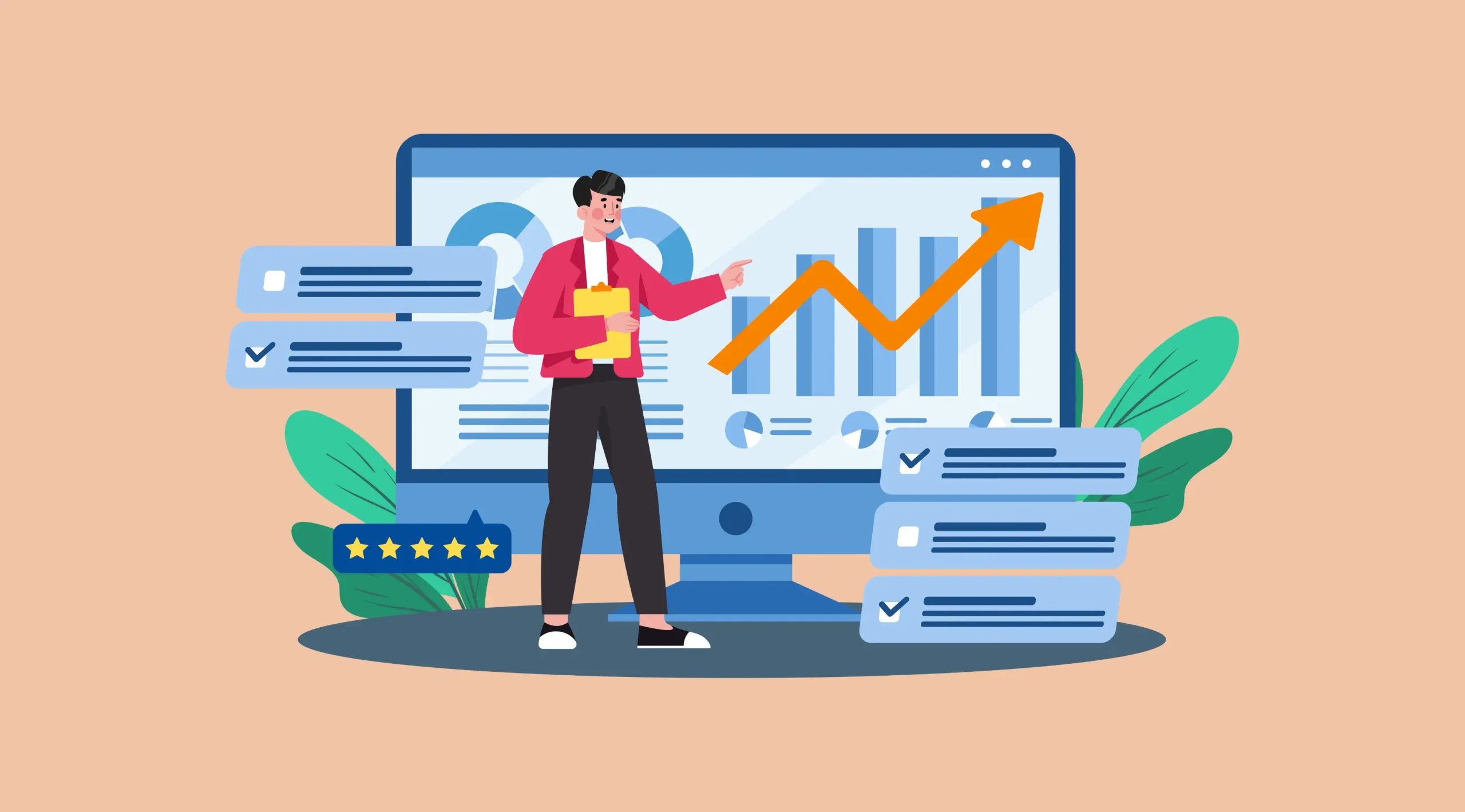
Beyond improving accuracy, predictive lead scoring provides dynamic adaptability. AI for B2B models can continuously update as new data flows in, refining the likelihood of conversion over time. This allows enterprises to respond quickly to changes in prospect behavior, ensuring that high-value opportunities are never overlooked. As a result, predictive lead scoring powered by AI for B2B increases conversion rates and maximizes return on marketing investment.
Hyper-personalization at scale (content, ABM)
Account-based marketing (ABM) is central to modern B2B strategy, but its effectiveness depends heavily on personalization. AI for B2B enables hyper-personalization at scale by analyzing client behavior, communication preferences, and past interactions. Using natural language generation, AI can create tailored content, such as proposals or whitepapers, that address the specific pain points of each account.
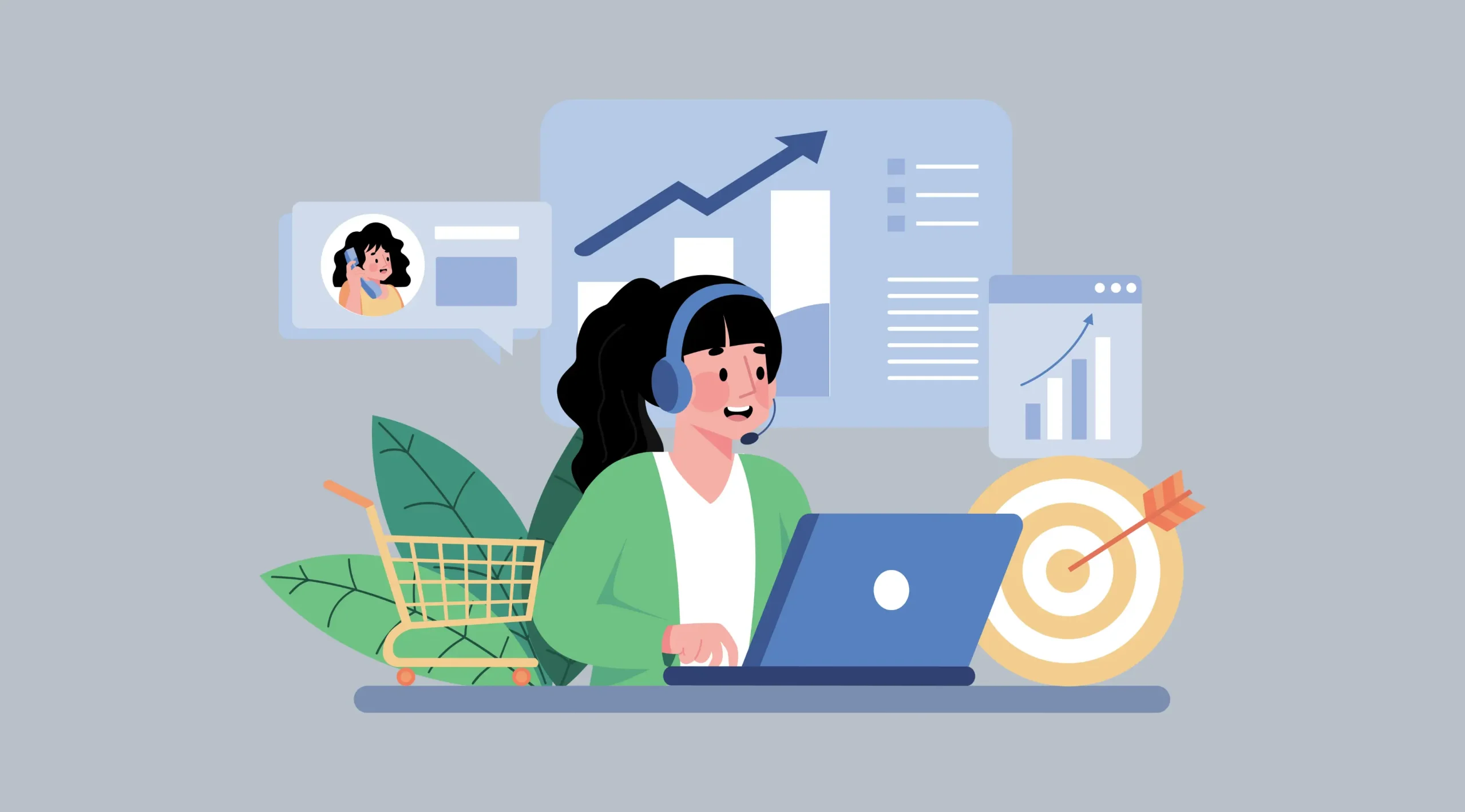
This personalization extends across multiple channels. AI for B2B ensures that messaging is consistent whether delivered through email, webinars, or targeted ads. By tailoring engagement to each decision-maker within an account, enterprises build stronger relationships and increase the likelihood of closing deals. Hyper-personalization powered by AI for B2B transforms ABM from a labor-intensive practice into a scalable strategy that drives measurable growth.
Campaign optimization with real-time analytics
Real-time analytics is another area where AI for B2B marketing delivers unparalleled value. Traditional campaigns often relied on post-mortem analysis to evaluate performance. AI for B2B changes this dynamic by analyzing campaign performance in real time, allowing for immediate adjustments to targeting, messaging, or budget allocation.

AI models can identify which segments are responding positively, which channels are underperforming, and where adjustments can maximize impact. This iterative optimization ensures that marketing resources are always deployed in the most effective way. For enterprises managing high-value accounts, AI for B2B’s ability to optimize campaigns in real time is a decisive competitive advantage.
AI in B2B Sales
B2B sales are complex, involving multiple touchpoints, long negotiation cycles, and significant financial stakes. AI for B2B sales provides sales teams with the intelligence needed to navigate this complexity effectively. From conversational AI that empowers sales reps to predictive systems that forecast deals, AI for B2B sales turns data into actionable insights and accelerates revenue generation.
Conversational AI for sales enablement
Conversational AI is revolutionizing the sales enablement process. Instead of generic scripts, AI for B2B provides sales representatives with real-time recommendations during client interactions. Virtual assistants can suggest the next best question to ask, highlight relevant case studies, or surface cross-selling opportunities based on client data.

These systems also extend beyond human-to-human interactions. AI for B2B conversational bots can handle initial prospect engagement, answer technical questions, and qualify leads before passing them to human sales reps. This reduces the burden on sales teams and ensures that their time is spent on high-value activities. Conversational AI powered by AI for B2B makes sales interactions smarter, more efficient, and more client-focused.
Intelligent CRMs with predictive insights
Customer Relationship Management (CRM) platforms are central to B2B sales, and AI for B2B has transformed them into powerful engines of predictive intelligence. Intelligent CRMs analyze historical interactions, buying patterns, and external data to predict client needs and suggest tailored engagement strategies.

By embedding predictive insights directly into the CRM, AI for B2B allows sales teams to focus on the accounts most likely to convert or expand. For example, predictive signals can indicate when a client is ready for renewal, when they might be evaluating competitors, or when they are likely to need complementary products. These insights empower sales representatives to act proactively, strengthening relationships and improving win rates.
AI-powered deal forecasting
Forecasting is critical in B2B sales, but traditional methods often rely on subjective judgments from sales teams. AI for B2B enhances forecasting by analyzing historical data, current pipeline activity, and market trends to provide more accurate projections. This reduces uncertainty and enables better resource planning.
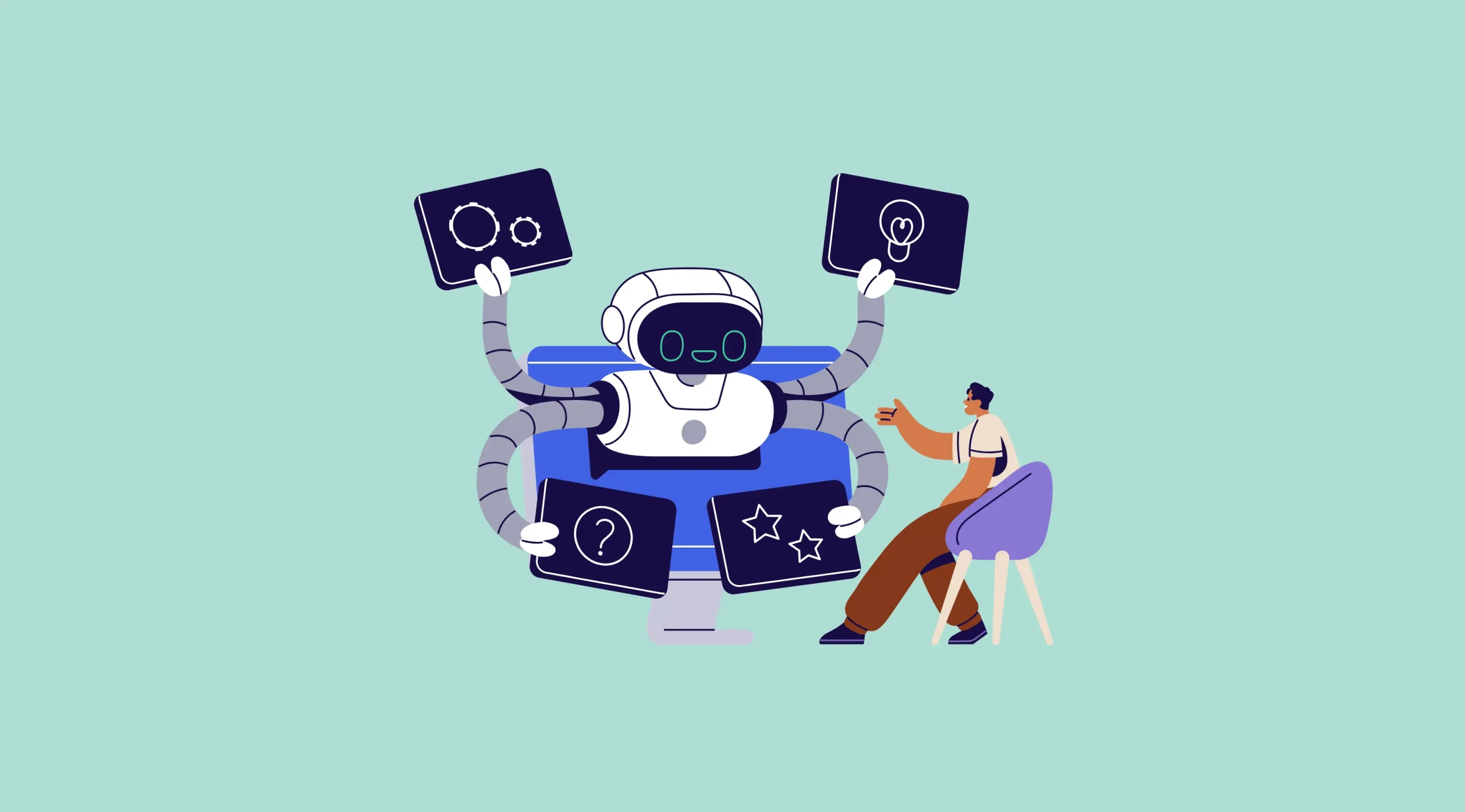
Moreover, AI for B2B forecasting systems can detect risks in deals, such as declining client engagement or delays in decision-making. By highlighting these risks early, sales leaders can intervene proactively. Accurate deal forecasting driven by AI for B2B not only improves revenue predictability but also strengthens organizational alignment between sales, marketing, and finance.
AI in B2B Customer Service
Customer service in B2B is not about solving simple transactional problems; it is about managing complex, long-term relationships that are central to enterprise success. AI for B2B customer service empowers organizations to deliver faster, more personalized, and proactive support, ensuring that customer satisfaction translates into loyalty and retention.
Autonomous chatbots and virtual agents
Chatbots and virtual agents are among the most common applications of AI for B2B customer service. Unlike basic bots, autonomous AI agents are capable of handling complex queries, integrating with enterprise systems, and escalating issues when necessary.
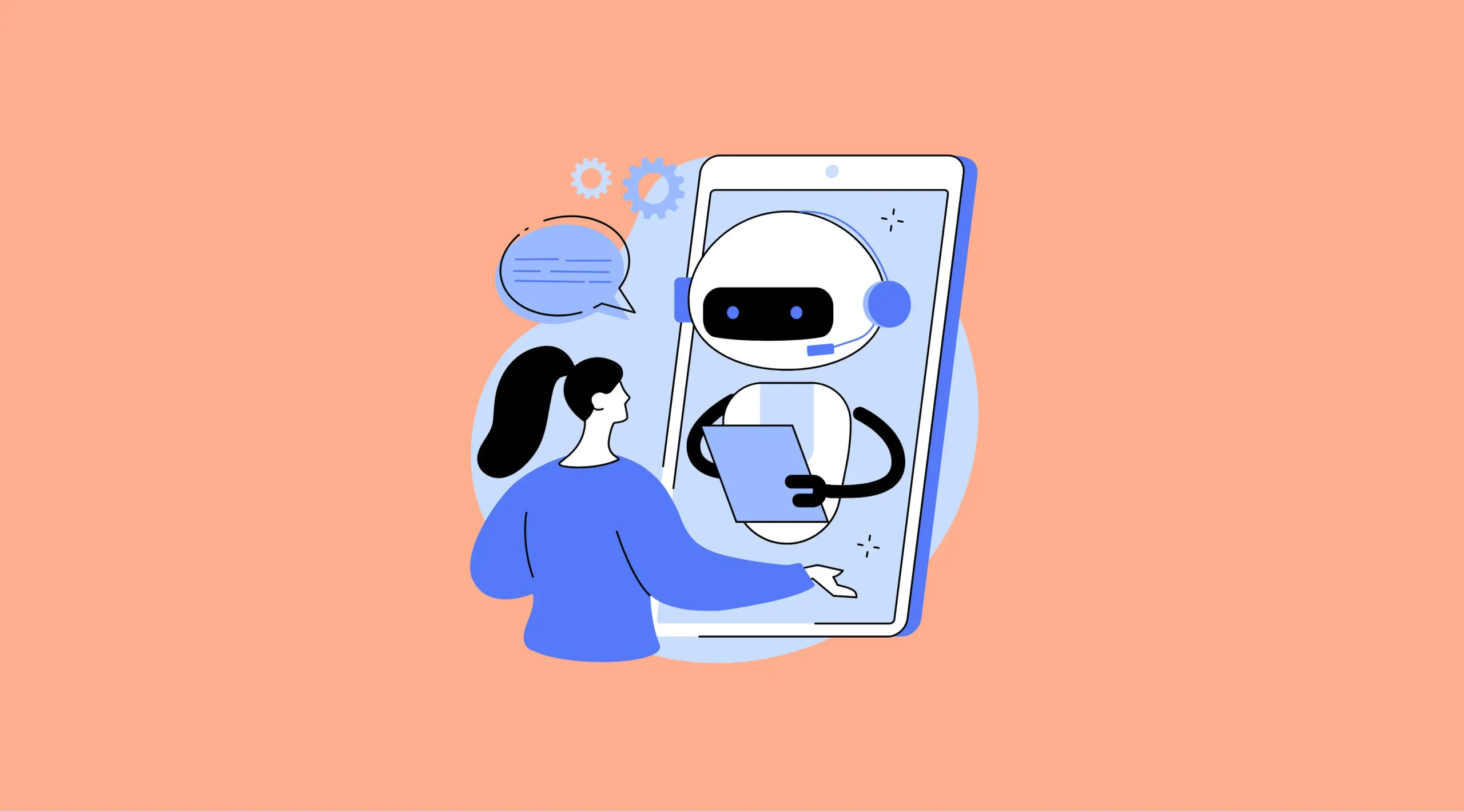
For instance, an AI for B2B virtual agent can access order histories, check compliance requirements, or provide troubleshooting instructions in real time. This reduces response times dramatically and ensures clients receive accurate information around the clock. By automating frontline support, enterprises free human agents to focus on higher-value interactions.
AI-driven knowledge bases
AI for B2B has also transformed knowledge management. Traditional knowledge bases were static repositories, but AI-driven platforms dynamically update with new information from client interactions, product updates, and industry developments.
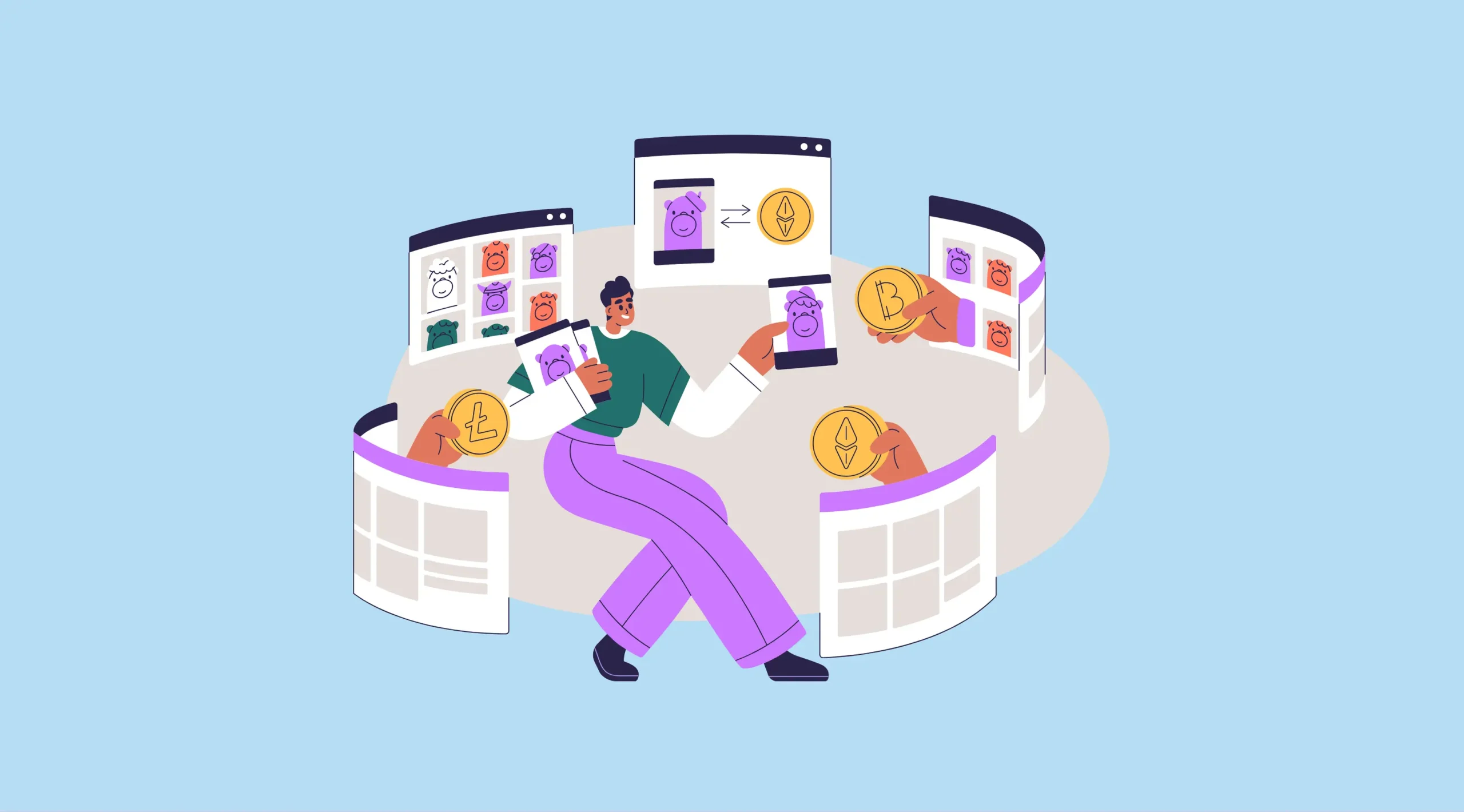
Clients and support teams alike benefit from this intelligence. AI for B2B knowledge bases can suggest relevant articles based on query context, reducing resolution times. For internal support teams, AI surfaces best practices and insights, ensuring consistency across service delivery. This proactive, intelligent approach makes knowledge management a cornerstone of modern B2B customer service.
Sentiment analysis for account management
Sentiment analysis adds another layer of intelligence to AI for B2B customer service. By analyzing emails, chat transcripts, and feedback surveys, AI systems can detect dissatisfaction or disengagement early.
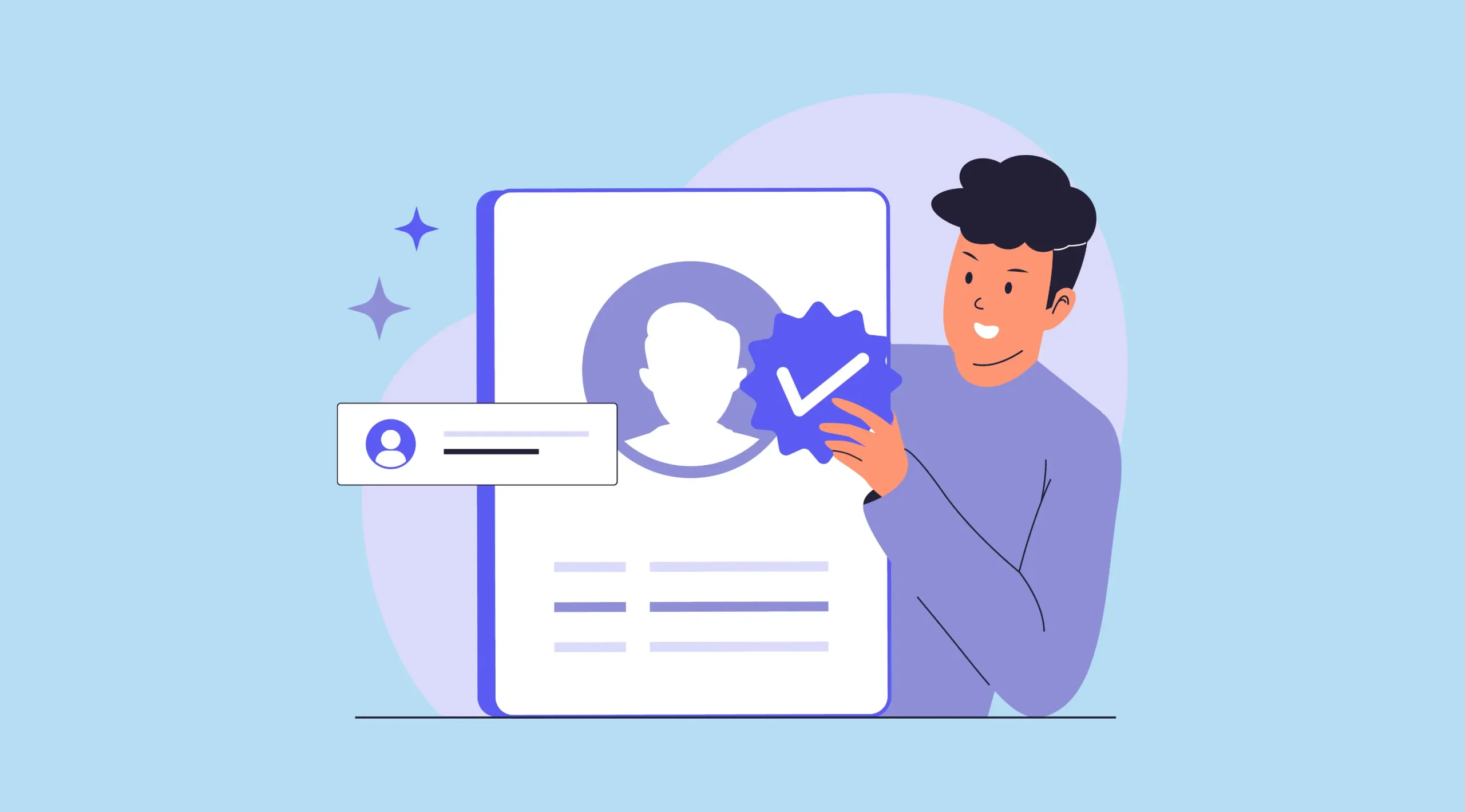
This allows account managers to intervene before issues escalate. For example, a drop in sentiment might trigger an alert that prompts the account manager to schedule a meeting or offer additional support. In B2B contexts where each account represents significant revenue, sentiment analysis powered by AI for B2B ensures that relationships remain strong and clients feel valued.
AI in B2B Supply Chain & Operations
Supply chain and operations management are at the heart of B2B commerce. Global disruptions, rising costs, and increasing customer expectations have made traditional supply chain practices inadequate. AI for B2B in supply chain and operations provides the predictive power and automation needed to manage complexity, reduce risk, and improve resilience.
Demand forecasting and inventory optimization
Accurate demand forecasting is essential for B2B enterprises, but traditional models struggle with volatility. AI for B2B uses machine learning to analyze historical sales data, market signals, and external factors like seasonality or economic trends to provide more accurate forecasts.

This predictive intelligence extends to inventory optimization. AI for B2B ensures that stock levels are neither too high, which ties up capital, nor too low, which risks lost sales. By balancing these factors, enterprises reduce costs while maintaining high service levels, building trust with their partners and customers.
Predictive maintenance in manufacturing supply chains
Manufacturing supply chains depend heavily on equipment reliability. Downtime can cause significant delays and financial losses. AI for B2B predictive maintenance systems analyze sensor data from machines to detect early signs of wear or malfunction.

By predicting failures before they happen, AI for B2B reduces downtime, extends equipment lifespan, and lowers maintenance costs. Predictive maintenance has become a cornerstone for industries like automotive, aerospace, and heavy machinery, where reliability and efficiency are critical.
Supplier risk management with AI
Supplier relationships are vital in B2B, but they also carry risks ranging from financial instability to compliance issues. AI for B2B enhances supplier risk management by analyzing performance data, financial reports, and even news articles or social signals to detect potential risks.

This intelligence allows procurement teams to diversify suppliers, renegotiate contracts, or take preventive measures before problems escalate. In a global economy where supply chains are increasingly fragile, supplier risk management powered by AI for B2B provides a significant competitive advantage.
AI for B2B Industries (Sector-Specific Use Cases)
AI for B2B is not a one-size-fits-all technology. Its impact varies significantly across industries, where each sector has unique challenges, priorities, and operational complexities. The strength of AI for B2B lies in its adaptability—it can be deployed in manufacturing, finance, healthcare, technology, logistics, and countless other industries to enhance efficiency, mitigate risks, and create value. By tailoring AI solutions to industry-specific requirements, enterprises unlock competitive advantages that would be impossible with generic approaches.
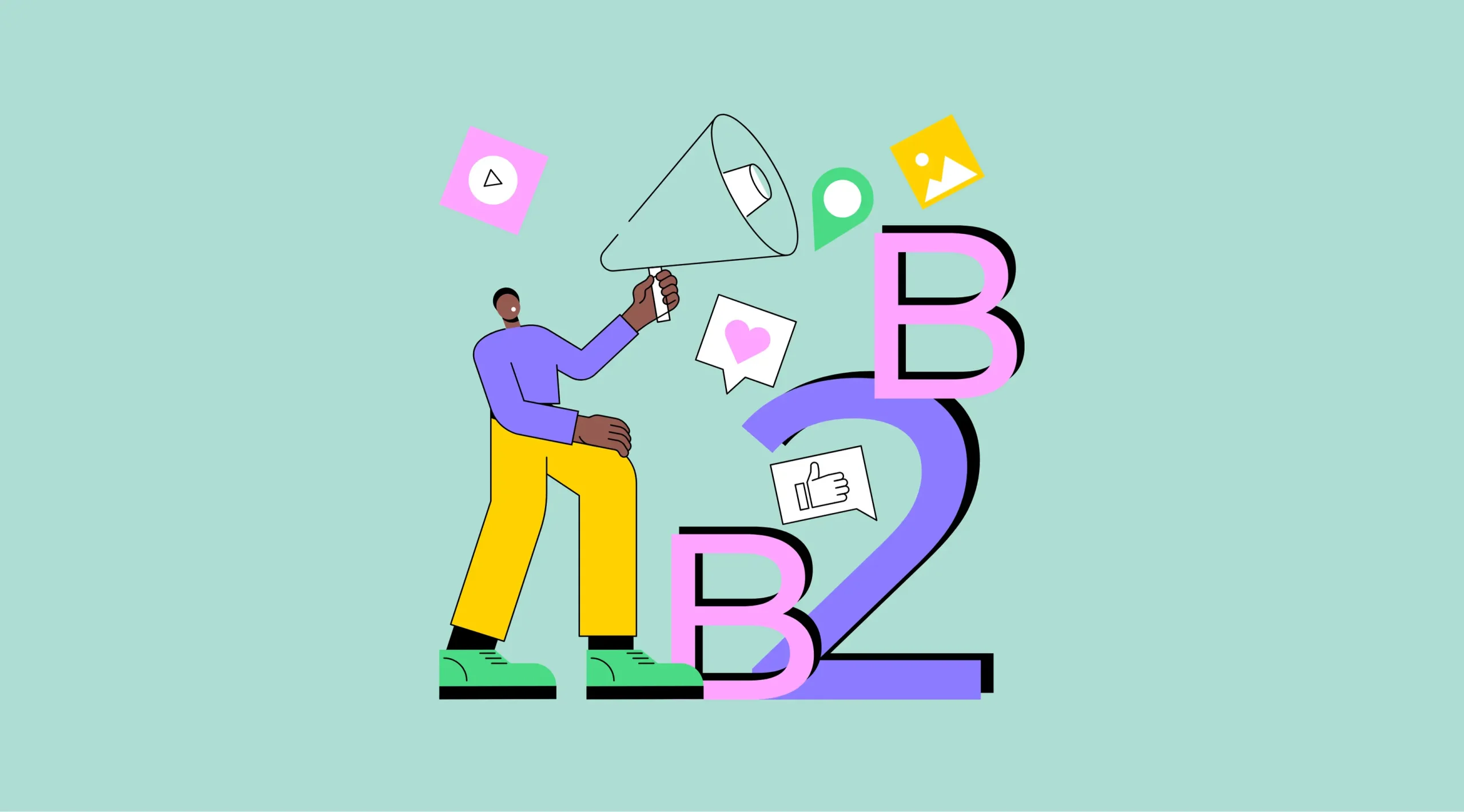
The following sector-specific use cases illustrate how AI for B2B is transforming traditional processes into intelligent, data-driven systems that improve both short-term performance and long-term resilience.
AI in Manufacturing B2B
Manufacturing is one of the industries where AI for B2B has the most transformative impact. The sector is characterized by large-scale operations, complex supply chains, high equipment costs, and intense competitive pressures. For decades, manufacturers relied on manual processes, historical data, and reactive approaches to solve problems.

With AI for B2B, factories are evolving into intelligent ecosystems that combine automation, real-time analytics, and predictive capabilities. The result is not only higher efficiency but also improved resilience and innovation across production networks.
Smart factories and predictive quality control
The concept of the smart factory has become central to Industry 4.0, and AI for B2B is the driving force behind it. Smart factories use interconnected systems, IoT sensors, and AI algorithms to monitor and control every aspect of production. AI for B2B enables these environments to detect inefficiencies, predict equipment failures, and optimize workflows without human intervention. Instead of reacting to problems after they occur, smart factories powered by AI for B2B anticipate issues and adjust operations dynamically.
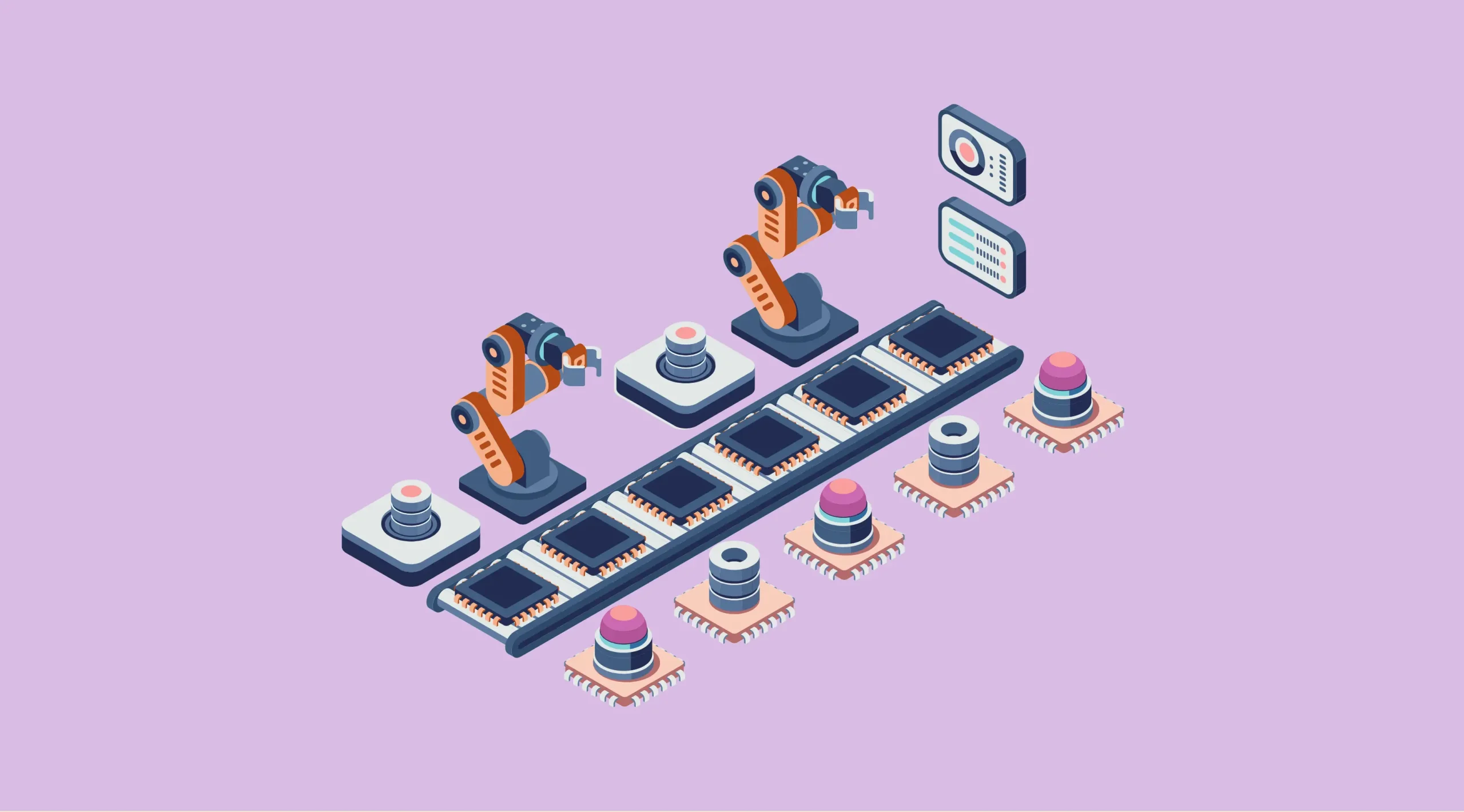
Predictive quality control is another major advancement. Traditional quality control often relied on manual inspection, sampling, or reactive detection of defects. AI for B2B applies computer vision and machine learning to monitor production in real time. Cameras and sensors can identify microscopic defects in materials or irregularities in assembly, allowing corrective actions to be taken immediately. This not only improves product consistency but also reduces waste, rework, and customer complaints. Manufacturers implementing predictive quality control with AI for B2B report higher yield rates and stronger client satisfaction, giving them a competitive edge in industries where precision is paramount.
Automated procurement and supplier selection
Procurement has long been a complex and resource-intensive area in manufacturing. Choosing the right suppliers requires evaluating costs, delivery reliability, quality standards, and compliance with regulations. Traditionally, this process involved manual research and negotiation, which was slow and often error-prone. AI for B2B transforms procurement by automating supplier evaluation and selection. Machine learning models analyze historical supplier performance, market pricing trends, and risk factors such as geopolitical events or financial instability.

With AI for B2B, procurement teams gain access to predictive insights that help them choose suppliers not only based on past performance but also on future reliability. Automated systems can rank suppliers, recommend optimal contract terms, and even trigger renegotiations when risk indicators are detected. This reduces procurement cycles, lowers costs, and strengthens supply chain resilience. Moreover, AI for B2B procurement systems can flag compliance risks, ensuring that manufacturers meet industry regulations and sustainability requirements. In a globalized world where supply chain disruptions are common, automated procurement powered by AI for B2B is a decisive advantage.
AI-driven demand forecasting for production planning
Accurate demand forecasting has always been a challenge for manufacturers. Fluctuating market conditions, seasonality, and unpredictable global events make traditional forecasting methods inadequate. AI for B2B changes this by applying advanced predictive analytics to massive datasets. It considers not only historical sales but also external factors such as economic indicators, competitor activity, and customer behavior patterns. The result is far more accurate and dynamic demand forecasts.
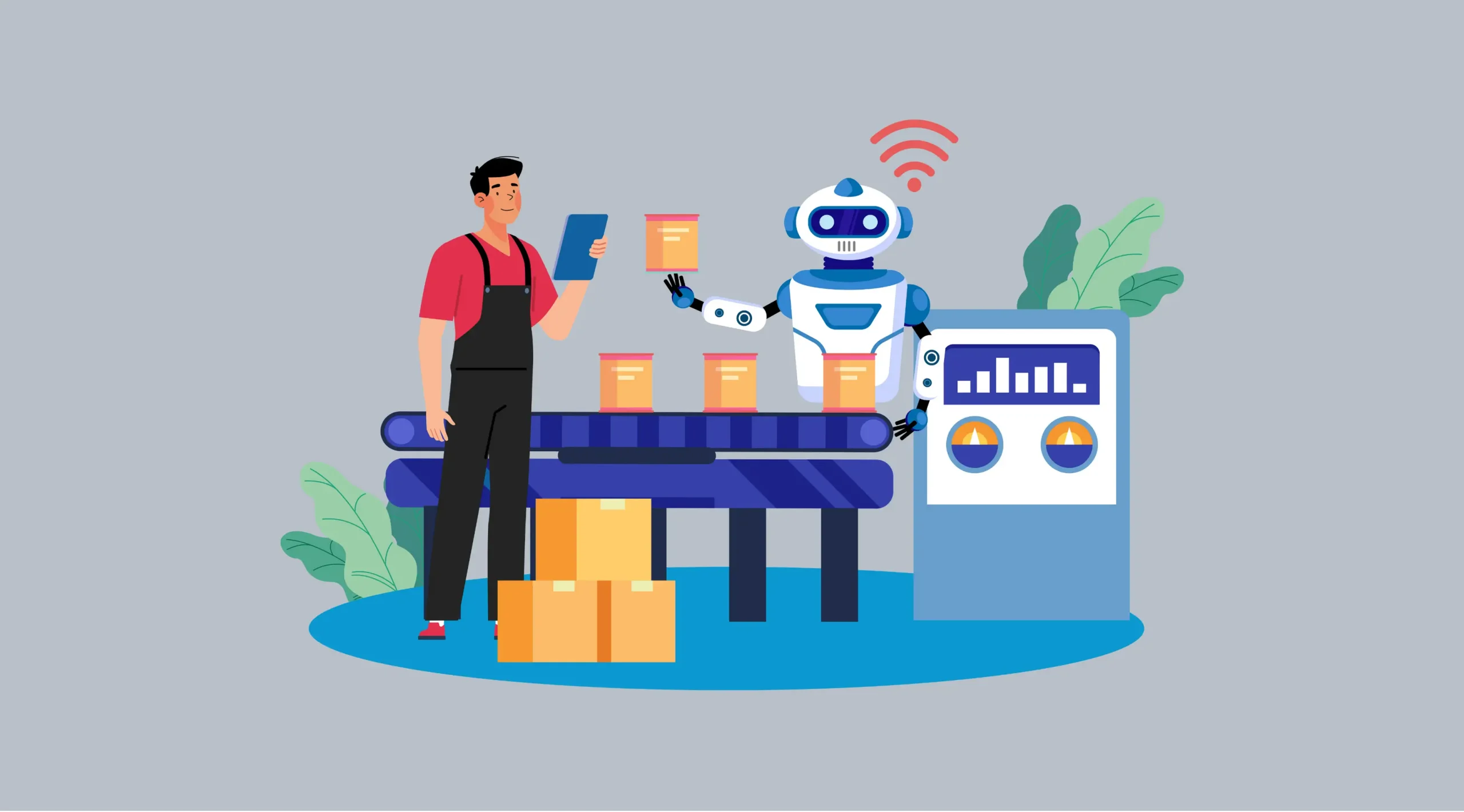
AI for B2B demand forecasting directly impacts production planning. Manufacturers can align production schedules with actual market demand, avoiding overproduction that leads to waste or underproduction that causes shortages. Real-time forecasting also allows factories to adjust quickly when unexpected changes occur, such as a sudden spike in demand or supply chain disruption. This agility reduces costs, optimizes inventory levels, and improves customer satisfaction by ensuring timely delivery of products. Enterprises adopting AI for B2B forecasting report greater efficiency in resource allocation and stronger overall profitability.
AI in B2B Finance & FinTech
The finance and FinTech sector is at the forefront of adopting AI for B2B, as it deals with massive volumes of transactions, regulatory complexity, and the constant need for risk management. Unlike consumer banking, where AI applications often focus on customer experience such as mobile chatbots or personal finance recommendations, AI for B2B in finance and FinTech focuses on fraud prevention, credit risk evaluation, trade finance, and compliance at the enterprise level.

These applications are critical, as errors in B2B finance can cost millions and even damage reputations across global networks. AI for B2B ensures accuracy, transparency, and trust in environments where financial stakes are high and relationships are long-term.
Fraud detection and regulatory compliance monitoring
Fraud is one of the most significant risks in financial transactions, and in B2B contexts, fraud can be extremely costly given the size of the contracts and payment flows. Traditional fraud detection relied on rule-based systems that flagged unusual activity, but these systems often generated too many false positives or failed to detect sophisticated schemes. AI for B2B has revolutionized fraud detection by applying machine learning models that analyze real-time transaction data, detect anomalies, and identify patterns indicative of fraudulent activity.

These models continuously learn and adapt, making AI for B2B far more effective than static rule sets. For example, if a supplier suddenly requests payments through an unusual account or if transaction amounts deviate significantly from historical norms, AI for B2B can flag these irregularities instantly. On the compliance side, AI for B2B also monitors transactions for alignment with global regulatory standards, such as anti-money laundering (AML) or know-your-customer (KYC) requirements. Natural language processing is used to analyze contracts, financial statements, and client documentation to ensure compliance. This reduces the risk of regulatory penalties and strengthens enterprise reputation. By embedding AI for B2B into fraud detection and compliance systems, financial institutions create a safer, more transparent ecosystem for global trade and investment.
AI for corporate lending and trade finance risk assessment
Corporate lending and trade finance are core components of B2B finance, but they are also areas rife with risk. Traditional risk assessment methods relied heavily on financial statements and credit history, which provide only a partial view of a company’s health. AI for B2B expands this scope by analyzing broader datasets, including market conditions, supply chain stability, news sentiment, and even geopolitical factors. This holistic view enables lenders to make better-informed decisions when extending credit or financing large-scale projects.
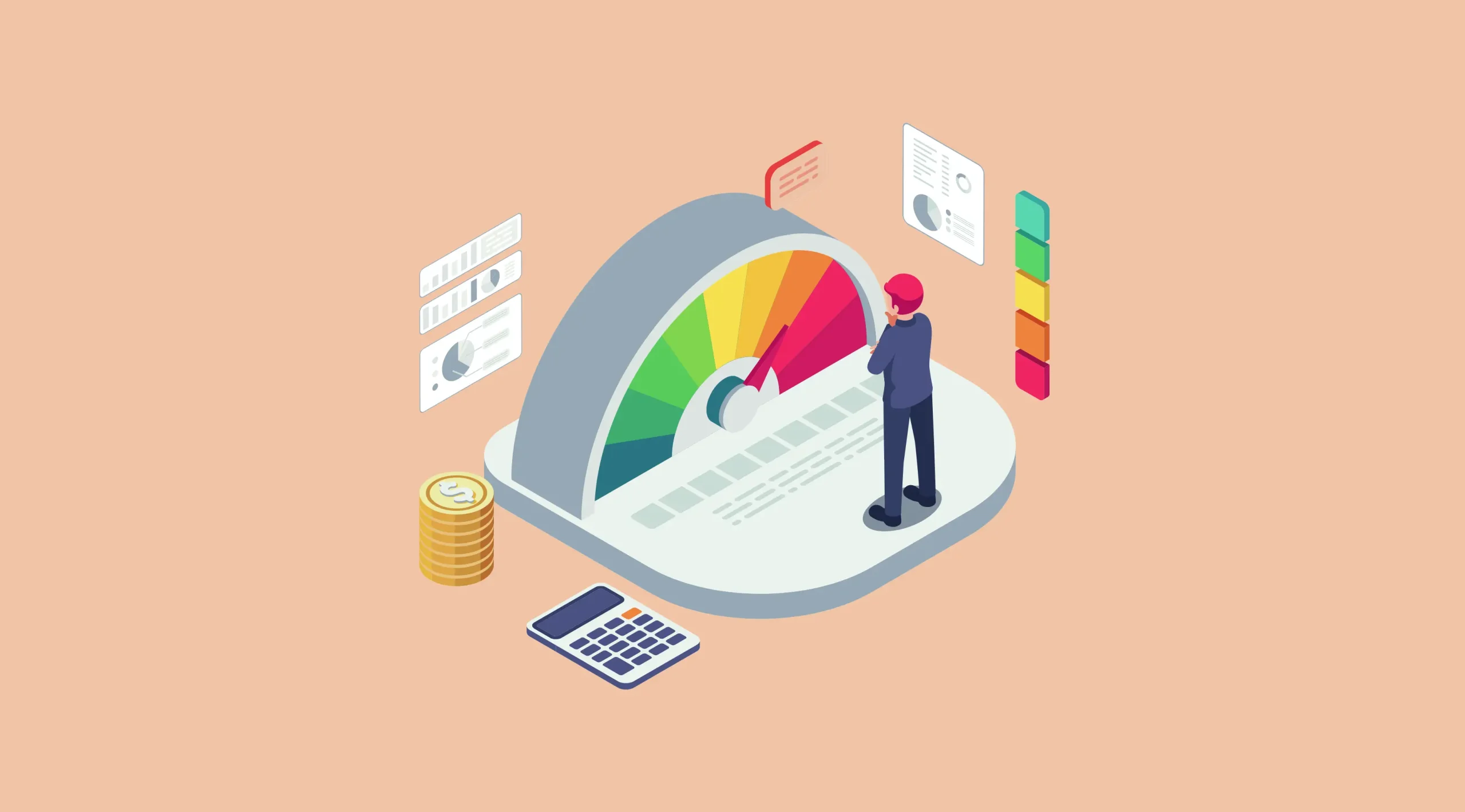
In trade finance, AI for B2B is particularly valuable because of the complexity of cross-border transactions. These deals often involve multiple currencies, varying regulations, and diverse stakeholders. AI for B2B can assess risk by monitoring transaction flows, verifying documents, and identifying potential bottlenecks in the supply chain. For instance, if a supplier in one country is flagged for reliability issues, AI for B2B systems can immediately highlight the potential risk to a pending financing deal. This real-time risk assessment minimizes losses and builds confidence among both lenders and borrowers. Over time, enterprises that leverage AI for B2B in trade finance are better positioned to expand globally, as they can manage uncertainty and volatility with greater precision.
Intelligent credit scoring and customer due diligence
Credit scoring is a foundational practice in finance, but traditional scoring systems often fail in B2B contexts where companies have complex financial structures. AI for B2B brings intelligence to credit scoring by incorporating non-traditional data sources such as payment histories, supplier reviews, transaction patterns, and even sentiment analysis from news reports or social media. By creating a multi-dimensional credit profile, AI for B2B ensures a more accurate assessment of a company’s ability to repay loans or fulfill financial obligations.

Customer due diligence is another area transformed by AI for B2B. Regulatory frameworks demand that financial institutions thoroughly vet clients before engaging in business relationships. This process can be slow and resource-intensive when performed manually. AI for B2B automates due diligence by scanning public records, financial statements, and compliance databases, then generating a risk profile for each client. Advanced systems can even identify hidden connections between entities, exposing shell companies or potential conflicts of interest. This reduces onboarding time for new clients, ensures compliance with regulations, and builds trust in financial transactions. Intelligent credit scoring and due diligence powered by AI for B2B therefore create a more secure and efficient financial ecosystem, benefitting both lenders and their clients.
AI in B2B Healthcare & Pharma
The healthcare and pharmaceutical industries operate in some of the most complex B2B ecosystems in the world. From global clinical trials to large-scale drug distribution networks, these industries rely heavily on coordination among manufacturers, suppliers, research institutions, logistics providers, and regulators. The stakes are exceptionally high: inefficiencies or disruptions can impact patient safety, regulatory compliance, and revenue streams worth billions.

AI for B2B has emerged as a transformative force in healthcare and pharma, introducing intelligence, automation, and predictive insights into every stage of the value chain. By applying AI for B2B solutions, organizations in this sector can improve efficiency, build stronger partnerships, and accelerate the development of life-saving therapies.
AI for clinical supply chain optimization
Clinical supply chains are notoriously complex. They involve sourcing raw materials, managing sensitive compounds, coordinating with contract research organizations, and ensuring compliance with stringent regulatory frameworks. Traditional supply chain systems often lack the agility to handle unexpected changes, such as delays in trial enrollment, fluctuating demand for investigational drugs, or sudden supply shortages. AI for B2B addresses these challenges by integrating predictive analytics and real-time monitoring into supply chain operations.

With AI for B2B, organizations can forecast demand for clinical supplies more accurately, identify potential bottlenecks, and optimize inventory management across multiple trial sites. For instance, machine learning algorithms can analyze patient recruitment rates, historical consumption patterns, and external factors such as regional logistics disruptions to predict exactly how much of a drug is needed at each location. This reduces waste, prevents shortages, and ensures trials stay on schedule. Additionally, AI for B2B enables continuous monitoring of temperature-sensitive materials, ensuring compliance with quality standards and minimizing costly product losses. The result is a more resilient and efficient clinical supply chain that accelerates the path from research to patient care.
Enhancing B2B partnerships in drug distribution and logistics
Drug distribution and logistics in the B2B healthcare ecosystem involve coordination between pharmaceutical manufacturers, wholesalers, distributors, hospitals, and pharmacies. The complexity is heightened by strict regulatory requirements, temperature-controlled shipping needs, and global distribution networks. AI for B2B enhances these partnerships by introducing transparency, predictive intelligence, and real-time coordination across the entire supply chain.

For example, AI for B2B systems can analyze order histories, shipping data, and regulatory requirements to predict demand fluctuations and proactively adjust distribution plans. Distributors benefit from AI-powered route optimization, which reduces transportation costs and ensures timely delivery of sensitive products such as vaccines or biologics. Manufacturers can use AI for B2B platforms to monitor distributor performance, evaluate compliance with service level agreements, and detect potential risks in the network. These insights build stronger, trust-based relationships between stakeholders and enable collaborative decision-making. In times of crisis—such as a pandemic—AI for B2B ensures that drugs and vaccines reach critical regions quickly, demonstrating its role as a cornerstone of modern pharmaceutical logistics.
AI-driven drug discovery collaboration platforms
Drug discovery is one of the most resource-intensive processes in healthcare, often requiring years of research, billions in investment, and collaboration between multiple institutions. Traditionally, B2B collaborations in drug discovery faced challenges due to siloed data, inconsistent communication, and long timelines. AI for B2B has revolutionized this space through the rise of AI-driven collaboration platforms that accelerate discovery while fostering stronger partnerships.

These platforms use advanced machine learning and generative AI to analyze massive datasets, such as genomic information, clinical trial outcomes, and scientific literature. AI for B2B enables research teams across different organizations to share insights securely, identify promising compounds faster, and simulate drug interactions with high accuracy. For example, AI-powered models can predict how a potential drug will behave in the human body before it enters expensive trial phases, saving time and resources. Moreover, AI for B2B platforms enhance transparency in partnerships by providing real-time dashboards that track project progress, resource allocation, and compliance metrics. This fosters collaboration between pharmaceutical companies, biotech startups, universities, and regulatory bodies, creating an innovation ecosystem where breakthroughs can happen faster and with greater precision.
AI in B2B Technology & SaaS
The technology and Software-as-a-Service (SaaS) sector has become one of the most dynamic fields for AI for B2B applications. As enterprises increasingly rely on SaaS platforms for everything from collaboration to finance, the competition among providers has intensified. Differentiation is no longer just about offering core functionality; it is about delivering personalized, intelligent, and value-driven services that build long-term relationships with enterprise clients. AI for B2B plays a crucial role here, empowering SaaS providers to tailor offerings, predict client behavior, and deliver proactive support.
AI-driven product recommendations for enterprise clients
Personalization is a key differentiator in the B2C world, but AI for B2B takes personalization to a new level by tailoring solutions for enterprise clients. Unlike individual consumers, enterprises often have diverse teams, varying use cases, and complex system requirements. AI-driven recommendation engines powered by AI for B2B analyze usage patterns, workflow bottlenecks, and historical purchasing behavior to recommend the most relevant features, add-ons, or complementary products.
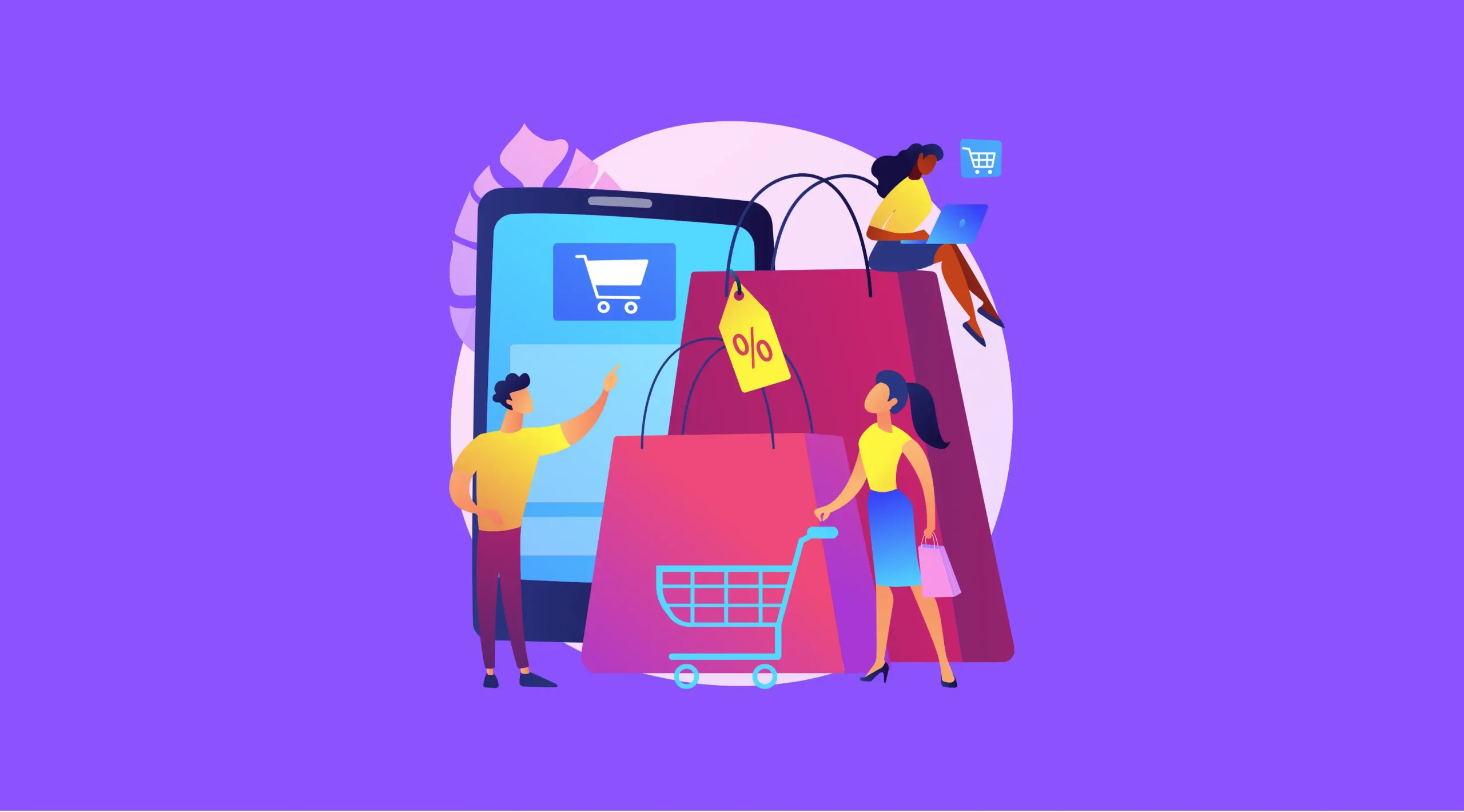
For example, if an enterprise is heavily using a SaaS platform’s analytics module but underutilizing its automation tools, AI for B2B can recommend training sessions, feature upgrades, or integrations that align with the client’s actual usage. These recommendations are not generic; they are deeply contextual and based on patterns drawn from similar enterprises across the provider’s client base. This creates more value for clients while driving revenue growth for the SaaS provider. Over time, AI for B2B recommendations build stronger relationships by ensuring enterprises see measurable ROI from the solutions they adopt.
AI in subscription management and churn prediction
Subscription models are at the heart of SaaS businesses, but they also present challenges in retention. Enterprises frequently reassess their software investments, and without proactive engagement, SaaS providers risk losing valuable clients. AI for B2B strengthens subscription management by analyzing customer behavior, billing data, and engagement levels to detect early warning signs of churn.
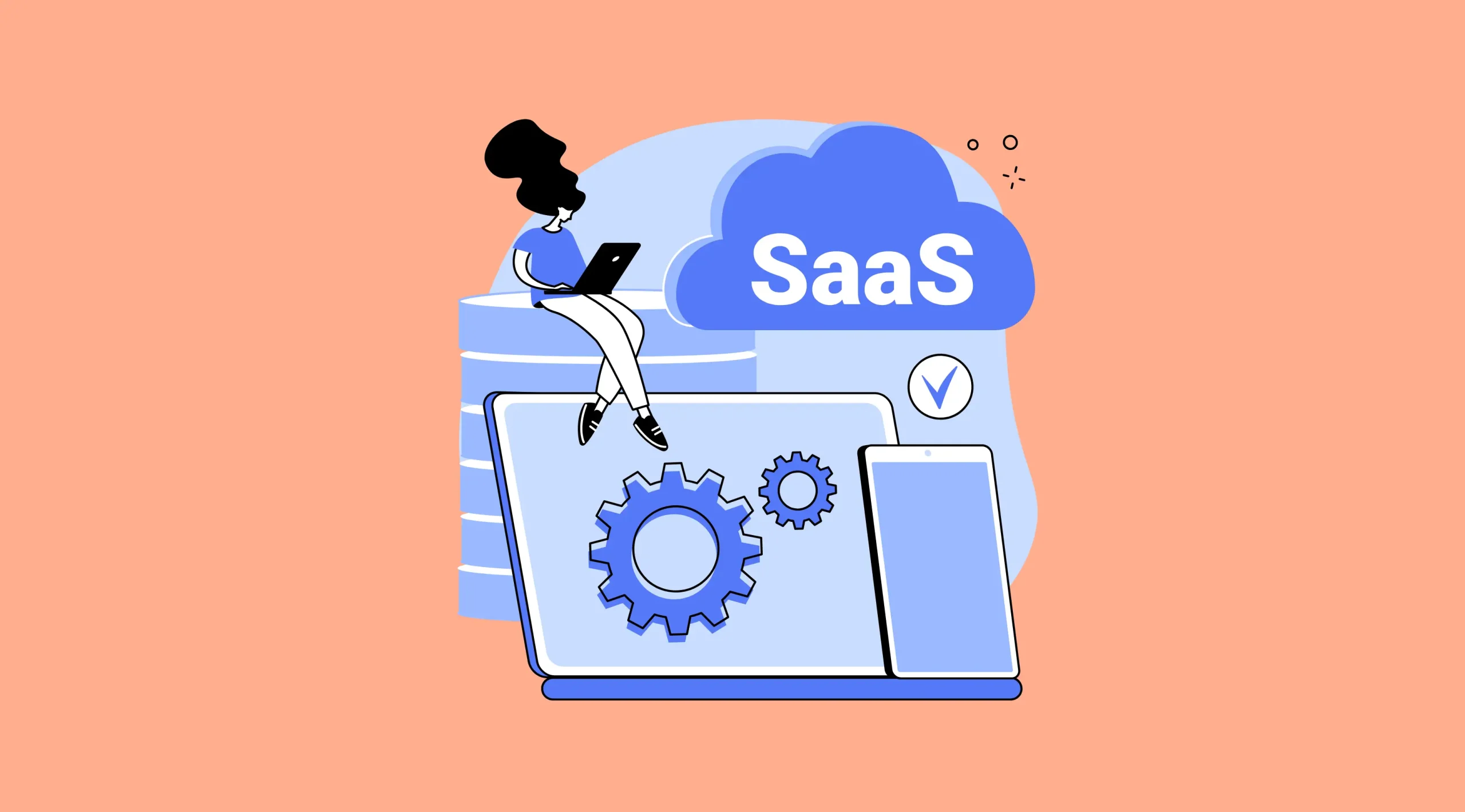
For instance, AI for B2B can identify when usage frequency drops, when support tickets increase, or when decision-makers stop engaging with the platform. These signals often precede cancellations, and AI alerts customer success teams in advance. With these insights, providers can take proactive steps such as offering tailored discounts, suggesting additional training, or showcasing underutilized features that deliver more value. Additionally, AI for B2B supports revenue forecasting by predicting renewal rates, upsell opportunities, and potential downgrades. By integrating AI into subscription management, SaaS companies not only minimize churn but also maximize lifetime value from enterprise clients.
Automated onboarding and customer success support with AI
Onboarding is one of the most critical phases in the SaaS lifecycle. If enterprise clients struggle to adopt a platform effectively, they are less likely to renew. AI for B2B enhances onboarding by automating personalized setup journeys. Intelligent systems can guide new users through platform features based on their role, previous experience, and anticipated needs. This reduces friction, shortens time-to-value, and ensures adoption rates remain high.
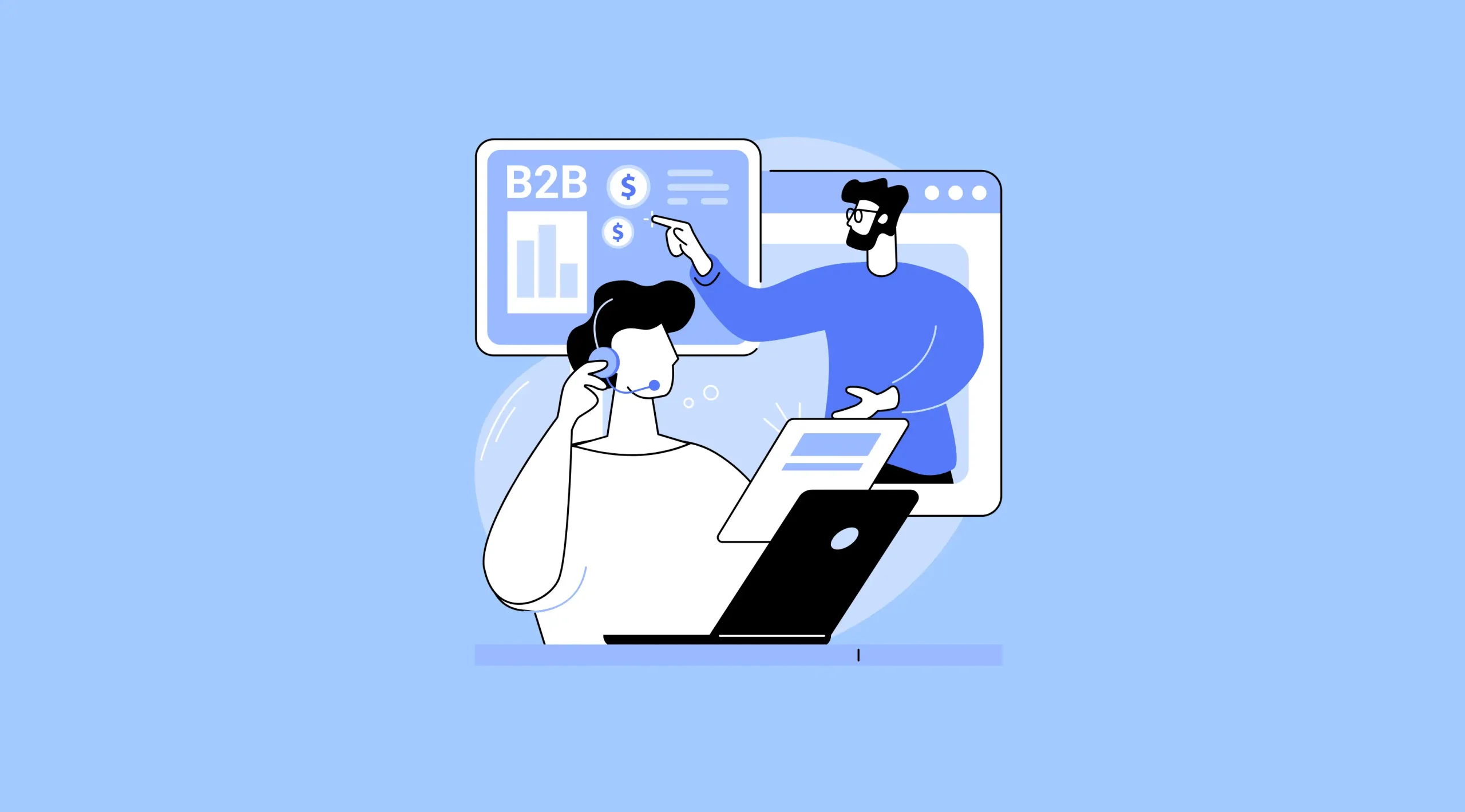
Beyond onboarding, AI for B2B strengthens customer success by providing ongoing, proactive support. Intelligent assistants can answer questions in real time, suggest resources, or escalate issues before they impact the client relationship. Predictive analytics further enhances this by identifying accounts that need additional support or are prime candidates for expansion. For example, AI for B2B can highlight that a client experiencing rapid growth may benefit from scaling up to a higher-tier plan or integrating with additional tools. By automating both onboarding and customer success processes, SaaS providers ensure that clients experience consistent value, building loyalty and long-term partnerships.
AI in Logistics & Wholesale
Logistics and wholesale distribution form the backbone of global B2B commerce. From moving raw materials to delivering finished goods across continents, these industries rely on efficiency, precision, and resilience. Traditional systems often struggle with inefficiencies caused by traffic delays, inventory mismanagement, or sudden supply chain disruptions.
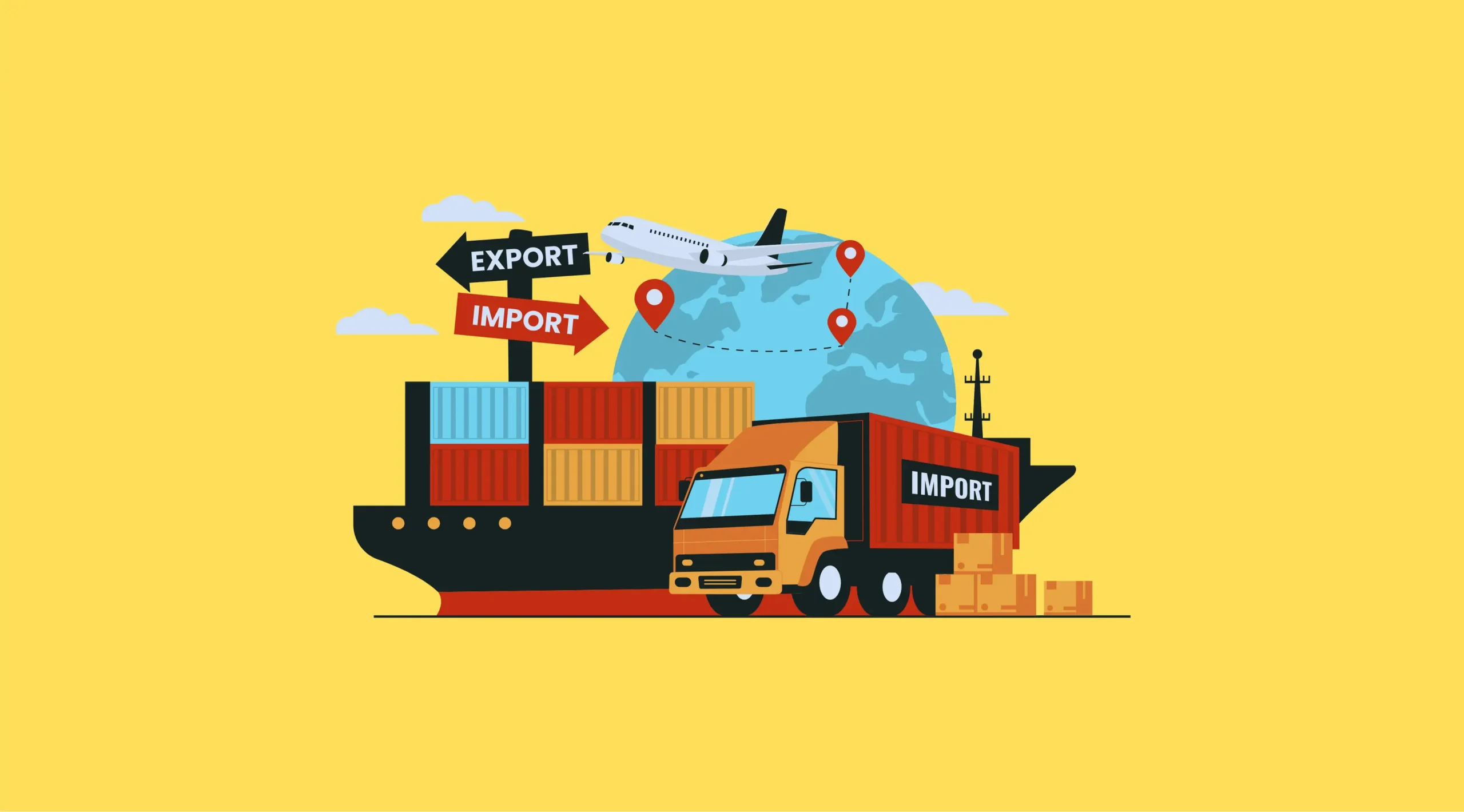
AI for B2B is transforming logistics and wholesale operations into highly intelligent, adaptive networks. By applying predictive analytics, machine learning, and robotics, enterprises can achieve optimized routing, automated warehouse operations, and smarter inventory management, ensuring that goods move faster and with fewer errors.
Route optimization for B2B delivery fleets
Transportation is one of the most costly and complex elements of logistics, and inefficiencies in fleet management directly impact profitability. Traditional route planning methods rely on static schedules and human judgment, which often fail to account for real-time variables like traffic conditions, weather changes, or unexpected delays. AI for B2B route optimization systems analyze live data streams to recommend the most efficient delivery paths, minimizing fuel consumption, reducing delivery times, and improving overall service levels.

For example, AI for B2B platforms can dynamically reroute trucks if traffic congestion is detected, ensuring on-time deliveries to B2B clients who depend on precise schedules. They can also prioritize deliveries based on customer value, urgency, or contractual obligations, making fleet operations more strategic. Over time, the data collected allows AI systems to learn from recurring patterns—such as seasonal peaks or specific regional delays—so that logistics companies can prepare proactively. This kind of intelligence powered by AI for B2B not only lowers costs but also strengthens client relationships by consistently delivering reliability.
AI-driven warehouse automation and robotics
Warehousing has traditionally been labor-intensive, with manual picking, packing, and stock-checking dominating operations. However, as eCommerce and wholesale volumes grow, manual approaches are no longer sustainable. AI for B2B is driving a new era of warehouse automation, where robotics and machine learning algorithms work together to improve efficiency, accuracy, and scalability.
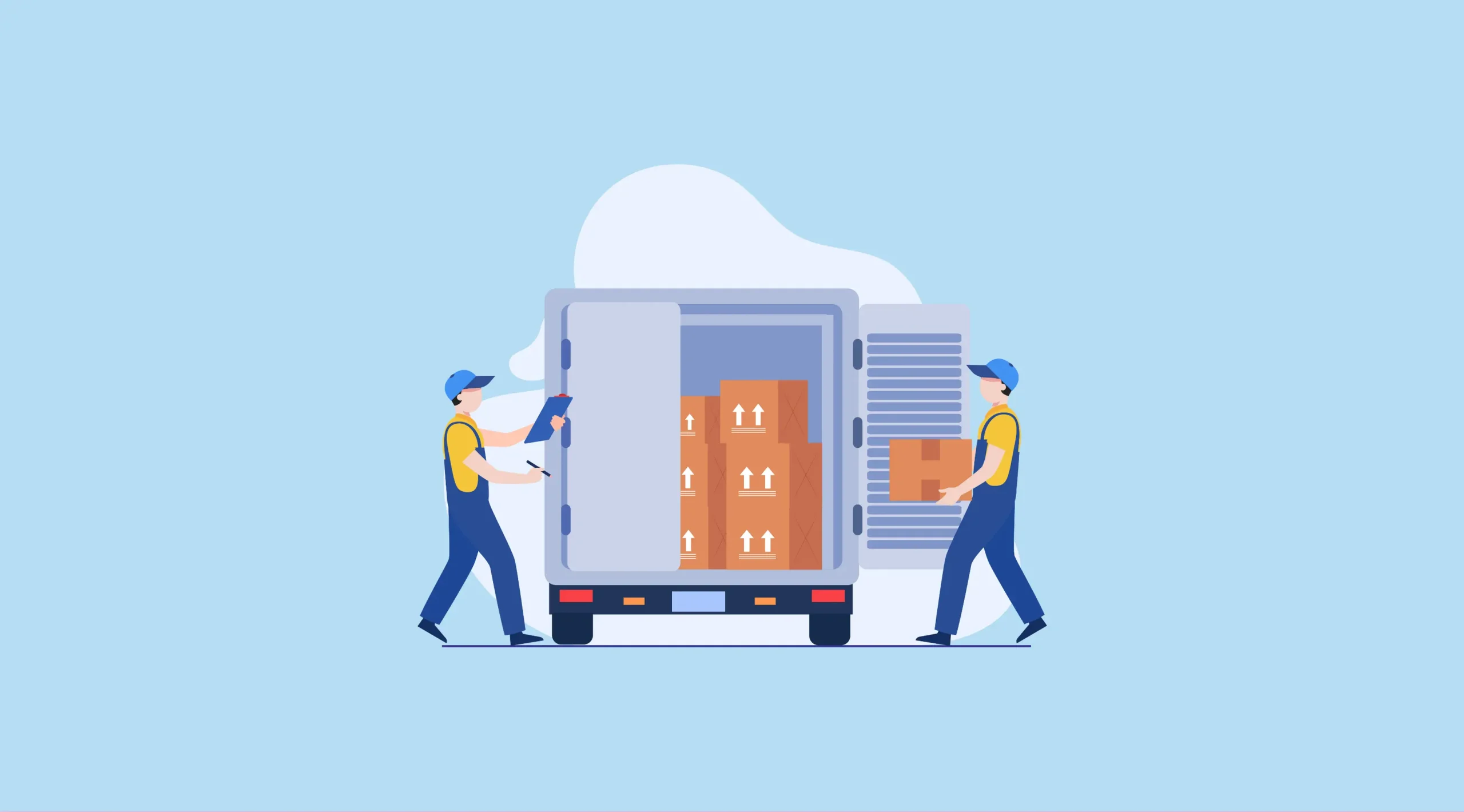
Robotic systems guided by AI for B2B can autonomously move goods across warehouses, retrieve items for orders, and even handle fragile products with precision. Machine vision enables AI-powered robots to identify, classify, and sort goods quickly, reducing human error and speeding up operations. Beyond robotics, AI for B2B also supports warehouse layout optimization, determining the most efficient way to store goods based on order frequency, product size, and replenishment cycles. These innovations reduce operational costs, increase throughput, and allow logistics and wholesale companies to scale without sacrificing quality. In environments where fast, accurate order fulfillment is critical, AI for B2B warehouse automation has become a defining competitive advantage.
Predictive analytics for inventory restocking and distribution
Inventory mismanagement—either overstocking or understocking—remains a major challenge in wholesale and logistics. Overstocking ties up working capital and increases storage costs, while understocking leads to missed sales opportunities and strained client relationships. AI for B2B predictive analytics provides a solution by forecasting demand accurately and recommending optimal restocking levels across distribution networks.
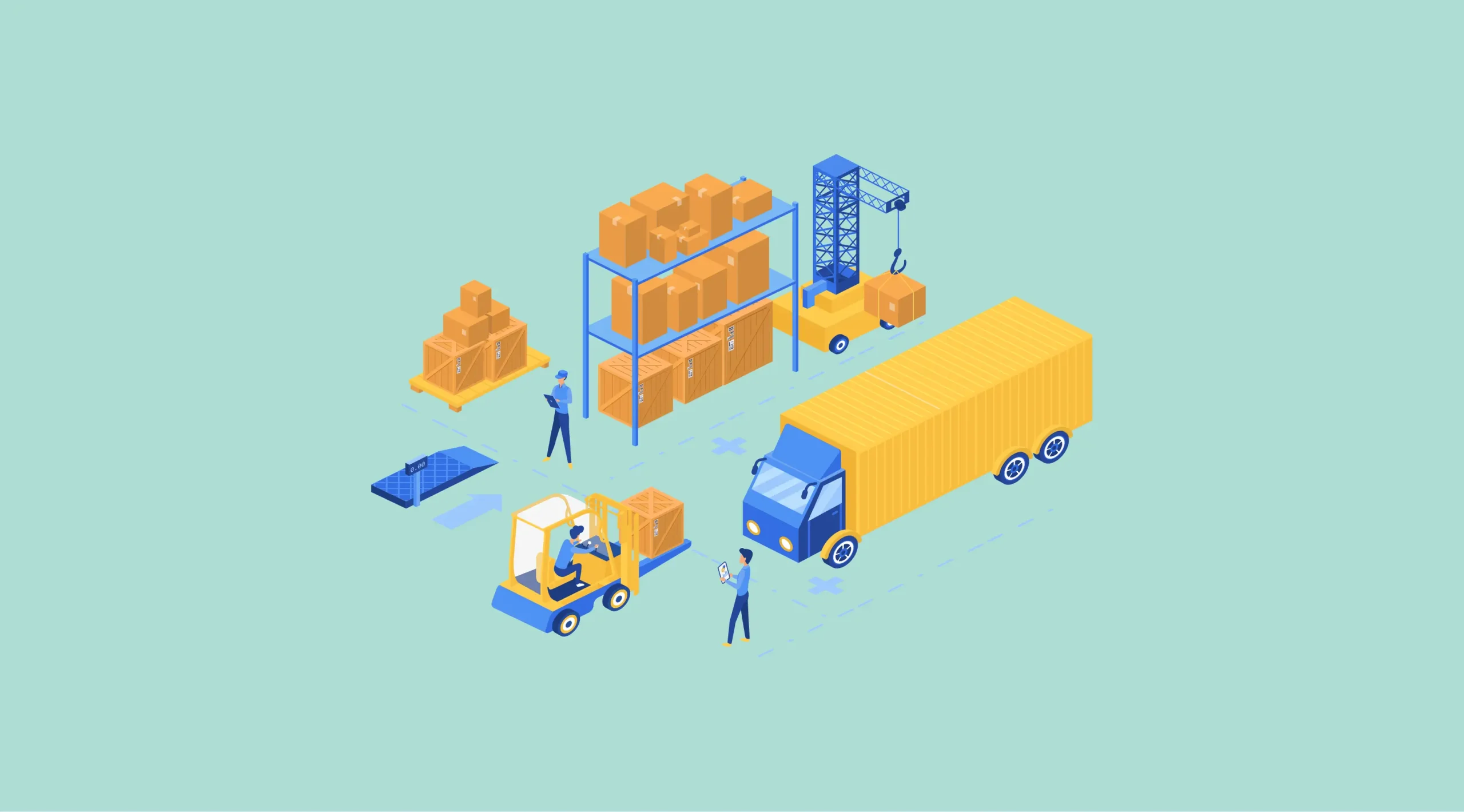
By analyzing historical sales data, seasonal patterns, supplier reliability, and external market conditions, AI for B2B models can predict which products will be in high demand and when. This ensures that warehouses are stocked appropriately, reducing waste and improving cash flow. On the distribution side, AI for B2B systems can recommend the best allocation of inventory across regional hubs, ensuring that goods are positioned closer to end customers. For example, predictive models might highlight that a certain product is trending in one region, prompting the company to restock that hub in advance. This kind of proactive distribution planning reduces delays, improves service quality, and enhances profitability.
Generative AI in B2B
Generative AI has quickly moved from experimental technology to a powerful enabler of enterprise innovation. In B2B contexts, the potential is even greater because businesses deal with high-value contracts, long sales cycles, complex documentation, and large teams that require efficient collaboration. AI for B2B powered by generative models goes far beyond automating basic tasks; it actively contributes to creativity, personalization, and strategic execution. By producing content, code, and knowledge at scale, generative AI helps enterprises accelerate processes, reduce costs, and compete more effectively in fast-changing markets.
Generative AI for Content Creation
Generative AI has revolutionized content creation in B2B environments, where enterprises traditionally spend countless hours drafting proposals, compliance documents, and technical reports. Unlike consumer-oriented content, B2B content must be precise, persuasive, and tailored to multiple stakeholders.
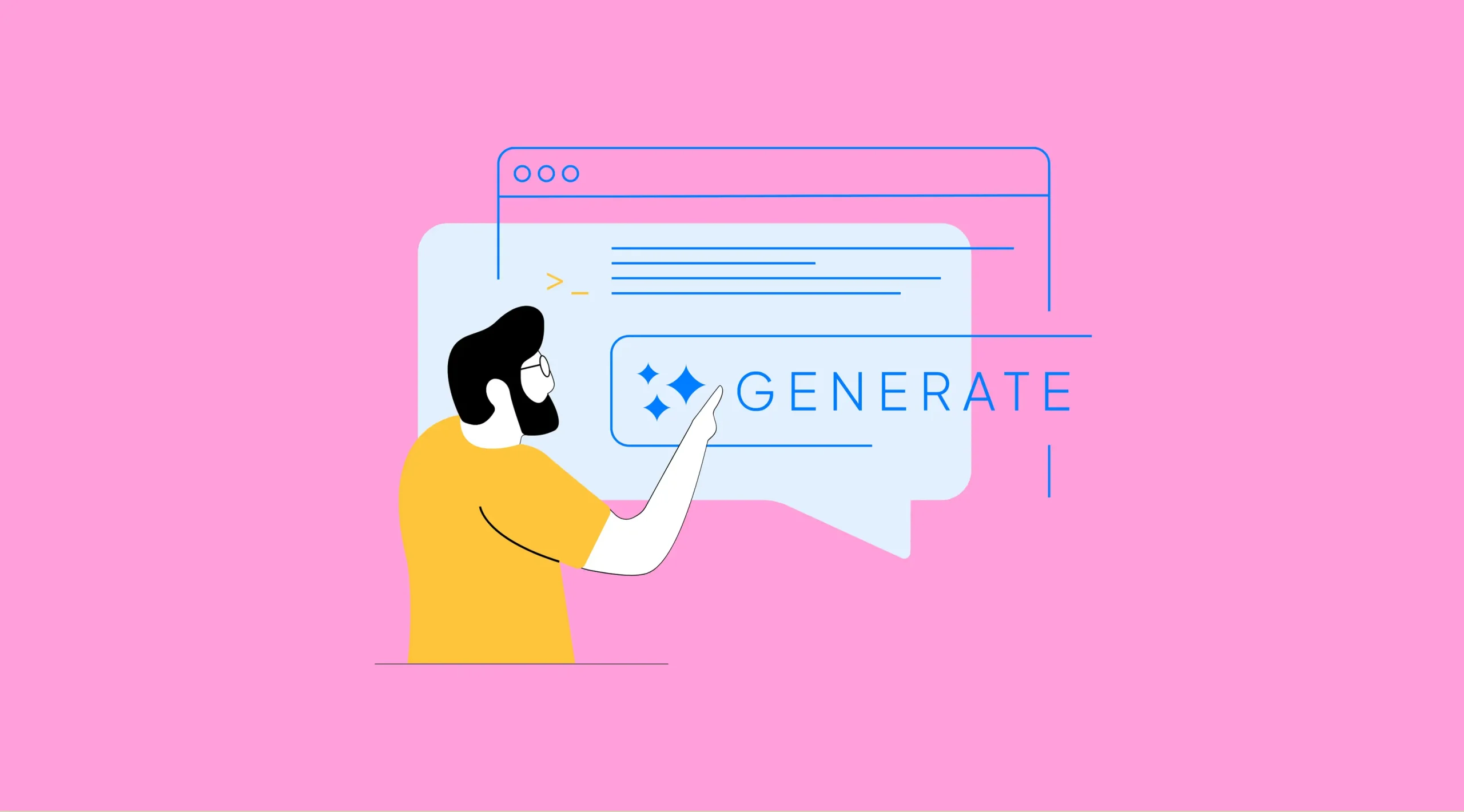
AI for B2B provides automation that not only saves time but also ensures consistency and accuracy across documents, helping teams deliver professional materials at scale without sacrificing quality.
Automating RFPs, proposals, and technical documents
Request for Proposals (RFPs) and technical documentation are among the most labor-intensive tasks in B2B operations. Each document requires input from multiple departments—finance, legal, technical, and sales—and delays can cost businesses valuable opportunities. Generative AI for B2B streamlines this process by automatically compiling data from past proposals, integrating industry standards, and generating drafts tailored to each client’s requirements. This reduces response times and ensures that proposals are both compliant and persuasive.
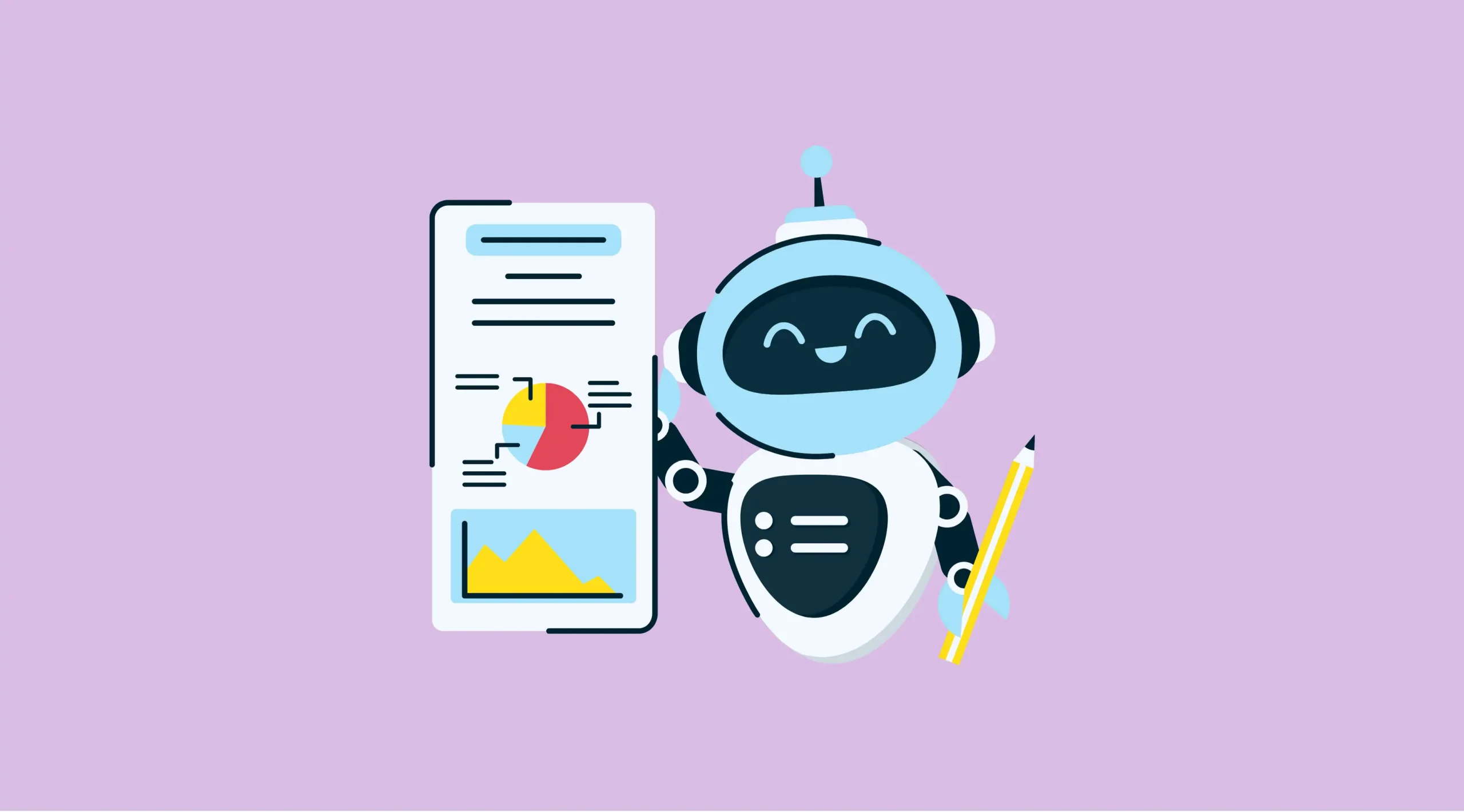
Beyond efficiency, automation also improves document quality. AI for B2B ensures that language is aligned with corporate branding, technical terms are consistent across documents, and compliance requirements are not overlooked. By freeing employees from repetitive drafting, generative AI allows them to focus on strategy, client engagement, and customization, creating stronger proposals that improve win rates in competitive markets.
Personalized marketing content for ABM campaigns
Account-based marketing (ABM) has become central to B2B strategy, but its success depends on delivering highly personalized content for each target account. Generative AI for B2B enables marketing teams to create customized whitepapers, email campaigns, landing pages, and case studies at scale. Instead of generic templates, AI can analyze account data, industry trends, and stakeholder preferences to generate materials that resonate with decision-makers.

This personalization increases engagement, as prospects receive content that speaks directly to their challenges and priorities. Furthermore, AI for B2B allows teams to test multiple variations of content, optimize tone and messaging, and adapt campaigns in real time. The result is more effective ABM campaigns that strengthen relationships, shorten sales cycles, and drive measurable ROI.
AI-powered reporting and presentation generation
Reporting and presentations are critical for communicating insights to clients, executives, and partners. Traditionally, these require significant manual effort to gather data, analyze trends, and create visual materials. Generative AI for B2B automates these tasks by pulling data from CRM systems, ERP platforms, and business intelligence tools to generate polished reports and presentations instantly.
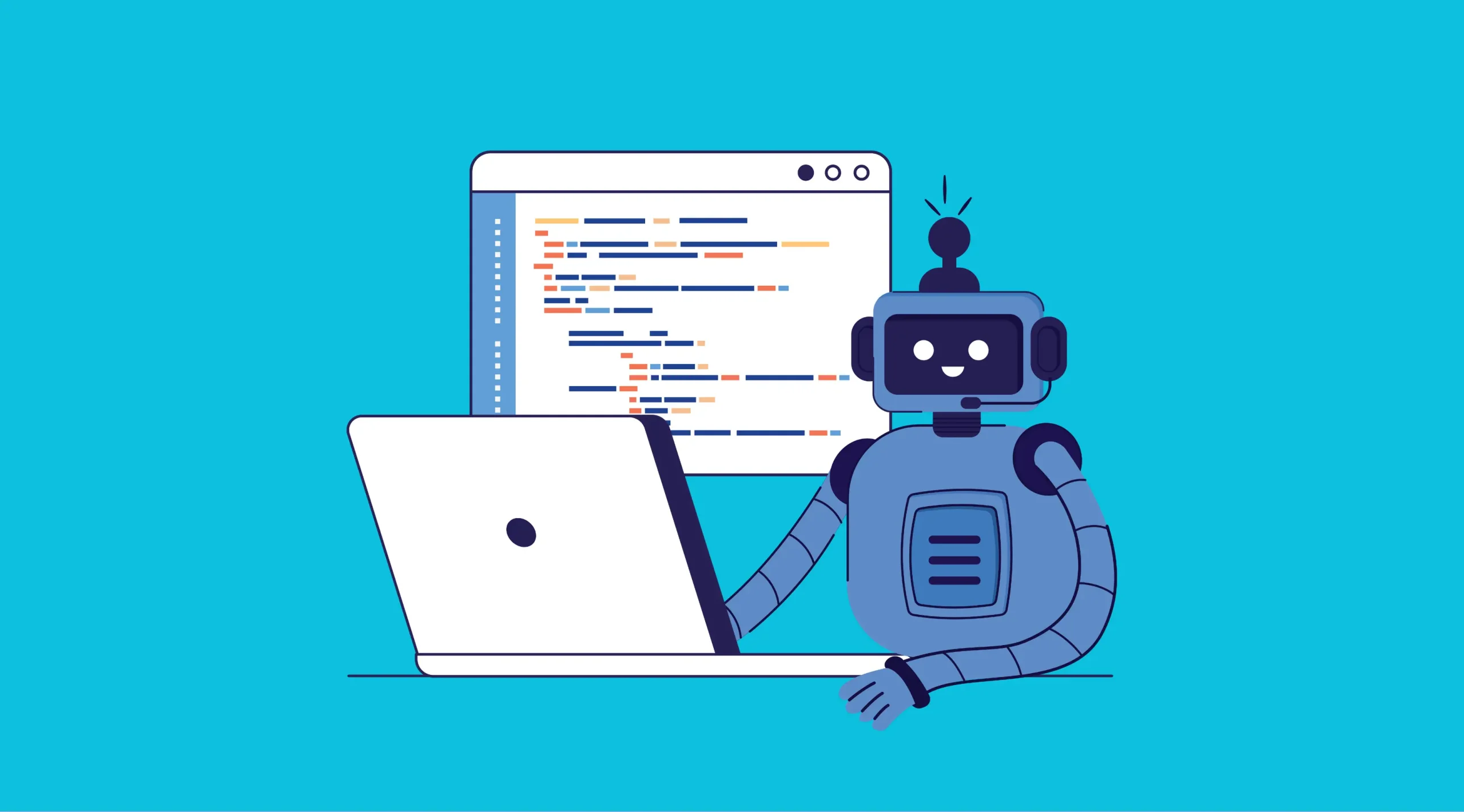
This automation not only saves time but also improves accuracy by eliminating human errors in data handling. For example, AI for B2B can generate quarterly performance reports complete with visualizations, executive summaries, and recommendations. Sales teams benefit from AI-generated pitch decks customized to each client, while internal stakeholders gain faster access to insights for decision-making. By standardizing reporting quality while reducing turnaround time, AI for B2B strengthens both internal efficiency and external client communications.
Generative AI for Code and Automation
In the world of enterprise software, custom solutions are often essential for aligning platforms with unique business processes. Traditionally, coding and integration required specialized technical expertise and lengthy development cycles.
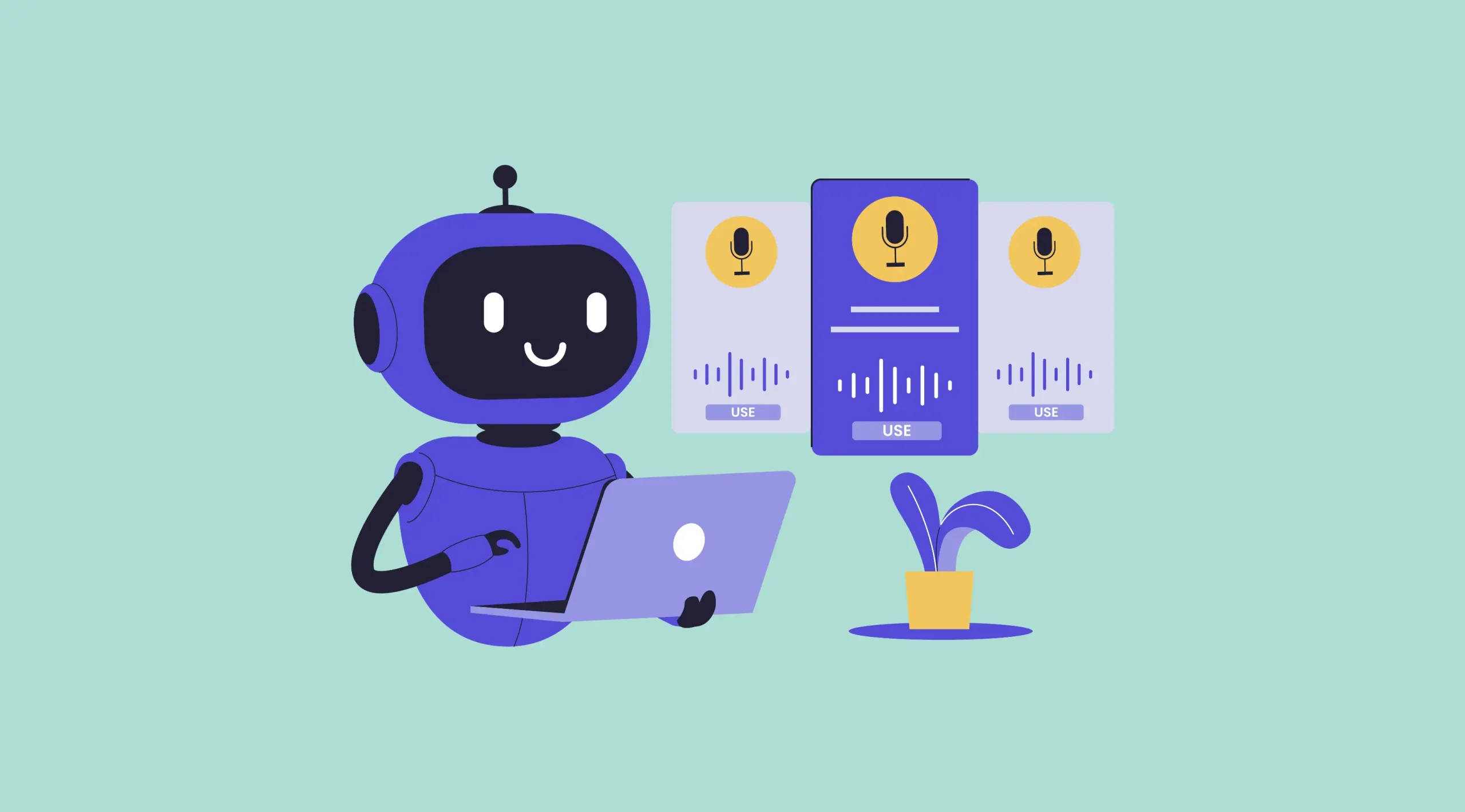
Generative AI for B2B accelerates this by generating code, creating integrations, and assisting with customization. By automating these tasks, enterprises can adapt more quickly to new opportunities, scale operations, and reduce reliance on scarce technical resources.
AI-assisted ERP/CRM customization
Enterprise Resource Planning (ERP) and Customer Relationship Management (CRM) platforms are central to B2B operations, but their implementation is rarely straightforward. Each business has unique workflows, reporting requirements, and compliance needs. Generative AI for B2B assists with customization by automatically generating code snippets, configuration scripts, and workflow rules based on user requirements.
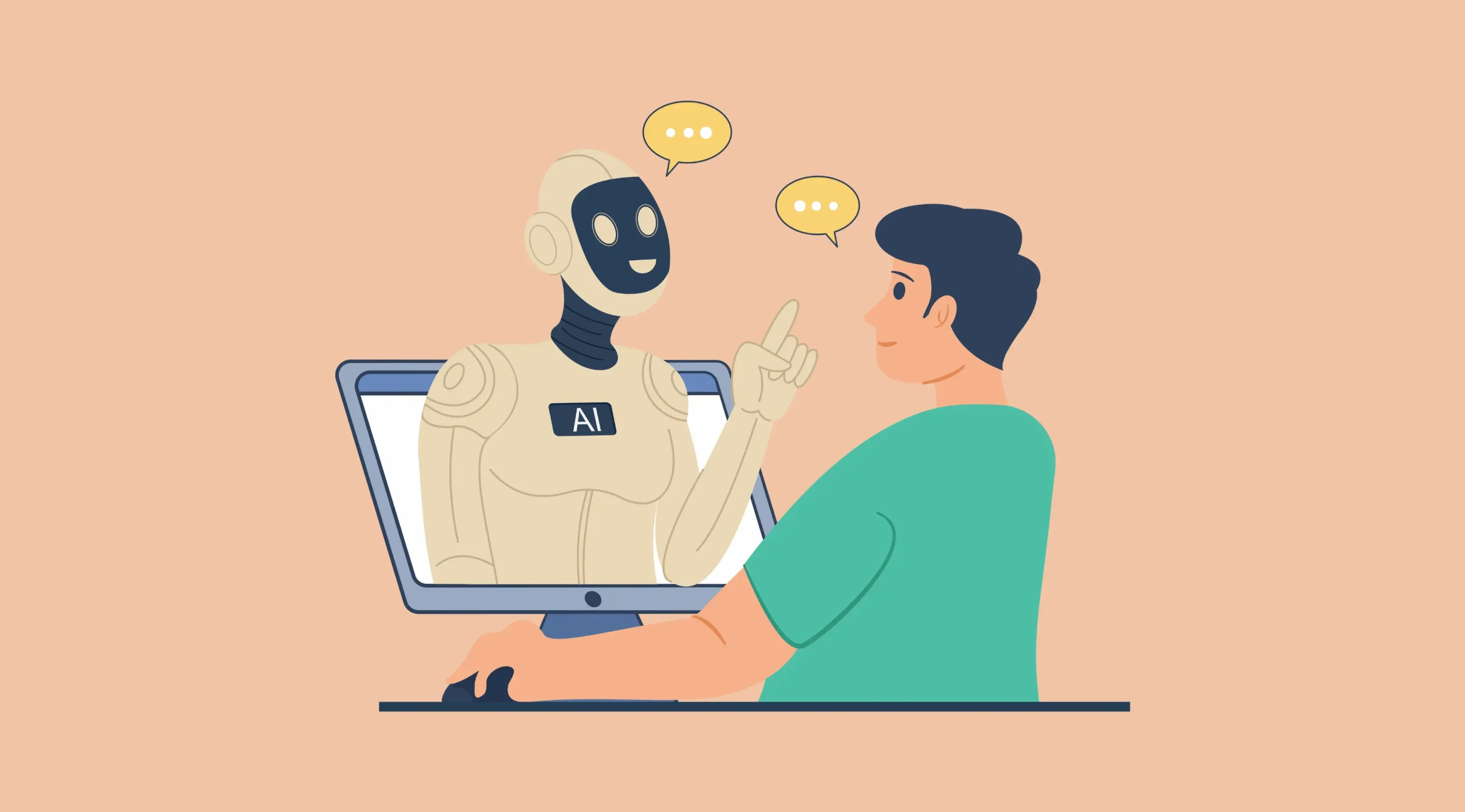
This reduces development time and minimizes errors that can occur during manual customization. For example, an AI-powered assistant can suggest optimized data flows in Odoo or Salesforce, generate reports tailored to compliance frameworks, or configure automated workflows in procurement. By reducing the complexity of customization, AI for B2B ensures that enterprises can fully leverage their software investments without long delays or excessive costs.
Automated integrations between B2B platforms
Enterprises typically rely on a vast ecosystem of platforms—ERP, CRM, supply chain management, HR systems, and eCommerce portals. Integrating these systems is often one of the biggest challenges in digital transformation. Generative AI for B2B automates this process by generating APIs, connectors, and middleware scripts that enable seamless data exchange between platforms.
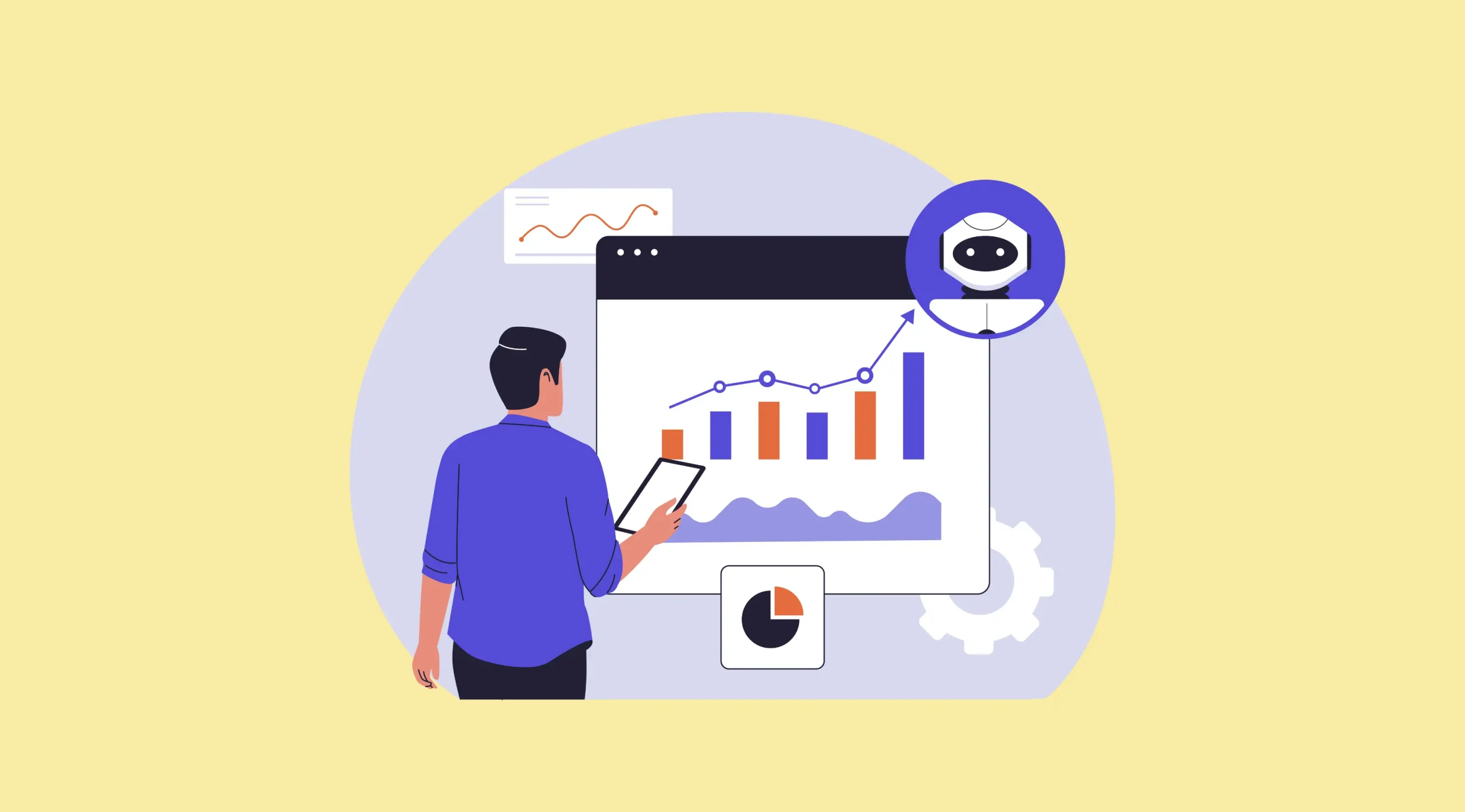
This automation ensures that data flows are secure, reliable, and optimized for performance. For instance, AI for B2B can create an integration pipeline between an ERP system and a logistics management tool, ensuring real-time synchronization of inventory and delivery data. Such integrations improve visibility, reduce redundancies, and prevent costly errors, making enterprises more agile and responsive.
Code generation for rapid enterprise prototyping
Innovation in B2B often requires building prototypes to test new ideas before full-scale implementation. Generative AI for B2B accelerates this process by generating working code for applications, dashboards, or workflows based on natural language prompts. Business leaders can describe a problem, and AI generates prototype solutions that technical teams can refine further.
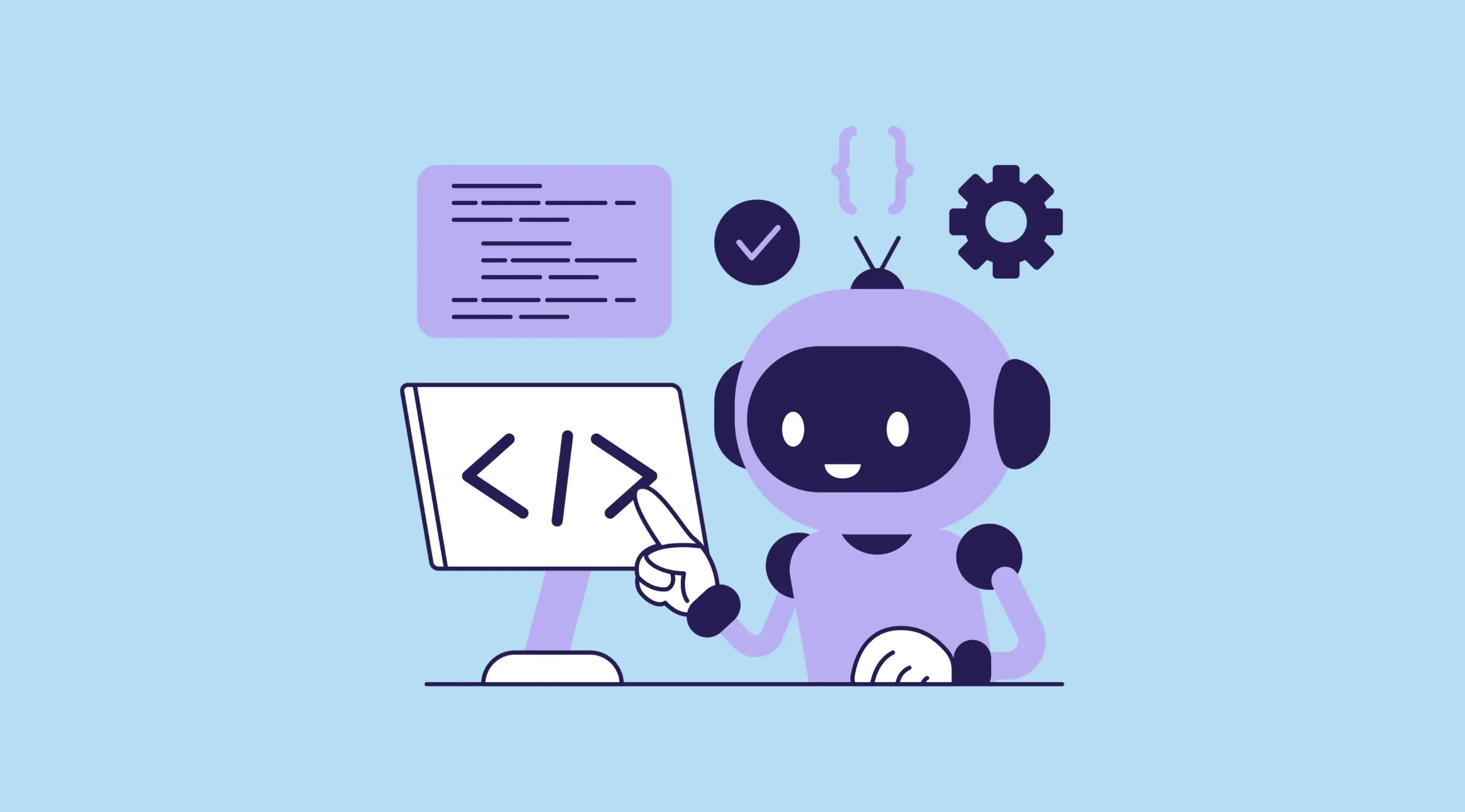
This reduces the time needed to move from concept to proof of concept, allowing enterprises to experiment more frequently and cost-effectively. By lowering barriers to innovation, AI for B2B fosters a culture of experimentation and agility. Companies that leverage generative code capabilities can adapt faster to changing market conditions, making them more competitive in industries where speed and flexibility are crucial.
Generative AI for Knowledge Work and Collaboration
B2B enterprises thrive on knowledge—whether in the form of research data, meeting notes, or collaborative projects. Managing and sharing this knowledge efficiently has long been a challenge. Generative AI for B2B transforms knowledge work by summarizing information, supporting collaboration, and even fueling innovation with new ideas. This ensures that knowledge is no longer locked in silos but is continuously transformed into actionable insights for decision-making.
Automating knowledge management with AI-powered document summarization and insight extraction
Enterprises generate vast amounts of unstructured data—emails, reports, research papers, and meeting transcripts. Sorting through this manually consumes valuable time and often leads to overlooked insights. Generative AI for B2B automates knowledge management by summarizing long documents, extracting key insights, and organizing information into accessible formats.
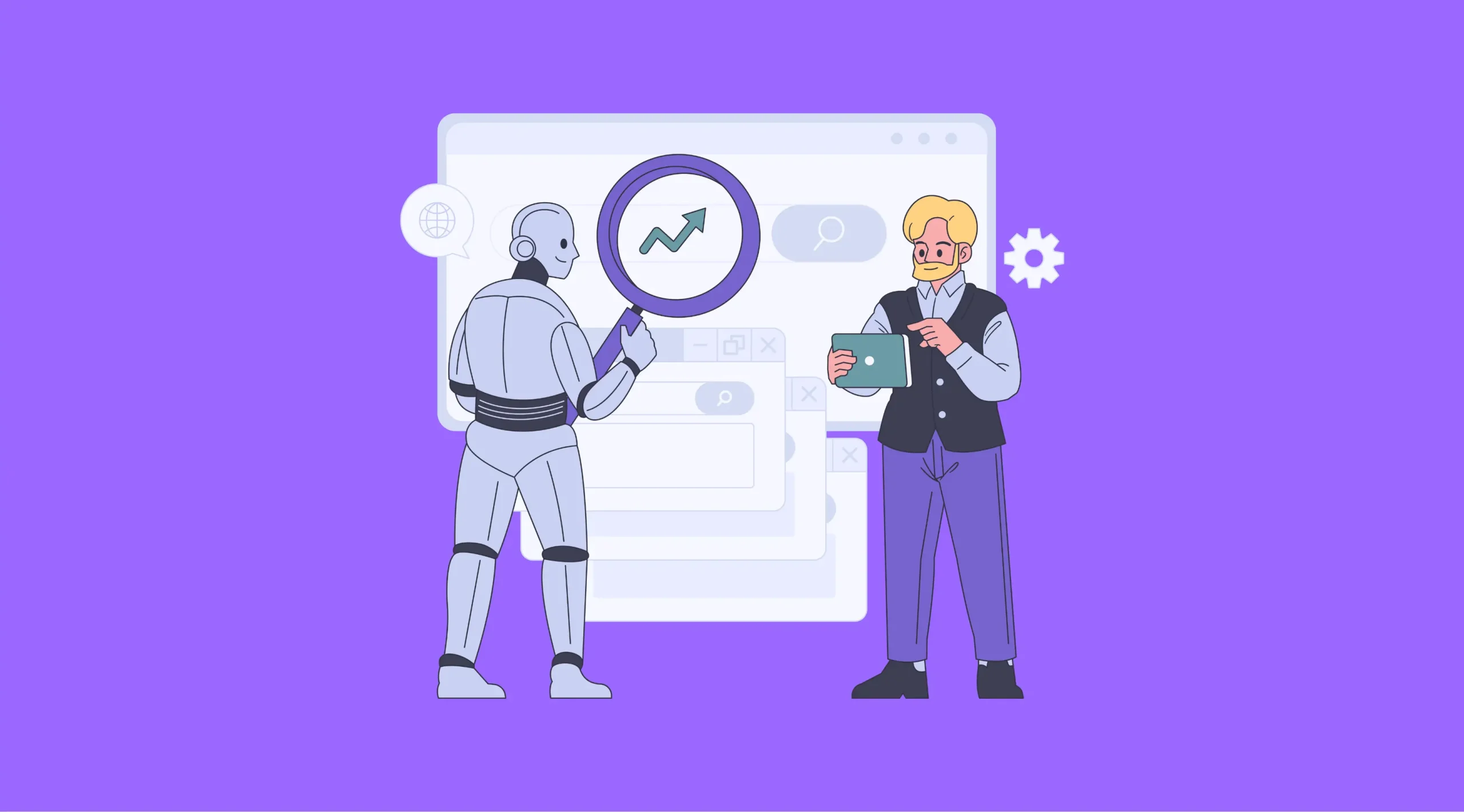
For example, AI can read through a hundred-page technical report and provide a concise summary for executives, highlighting risks, opportunities, and next steps. This reduces information overload and ensures that leaders make decisions based on complete and accurate insights. By automating knowledge management, AI for B2B increases productivity and ensures that critical information is always available when needed.
Enhancing team collaboration through AI-generated meeting notes, reports, and communication drafts
Collaboration in B2B involves numerous stakeholders spread across departments and geographies. Keeping everyone aligned requires constant documentation and communication. Generative AI for B2B enhances collaboration by automatically generating meeting notes, follow-up reports, and communication drafts.
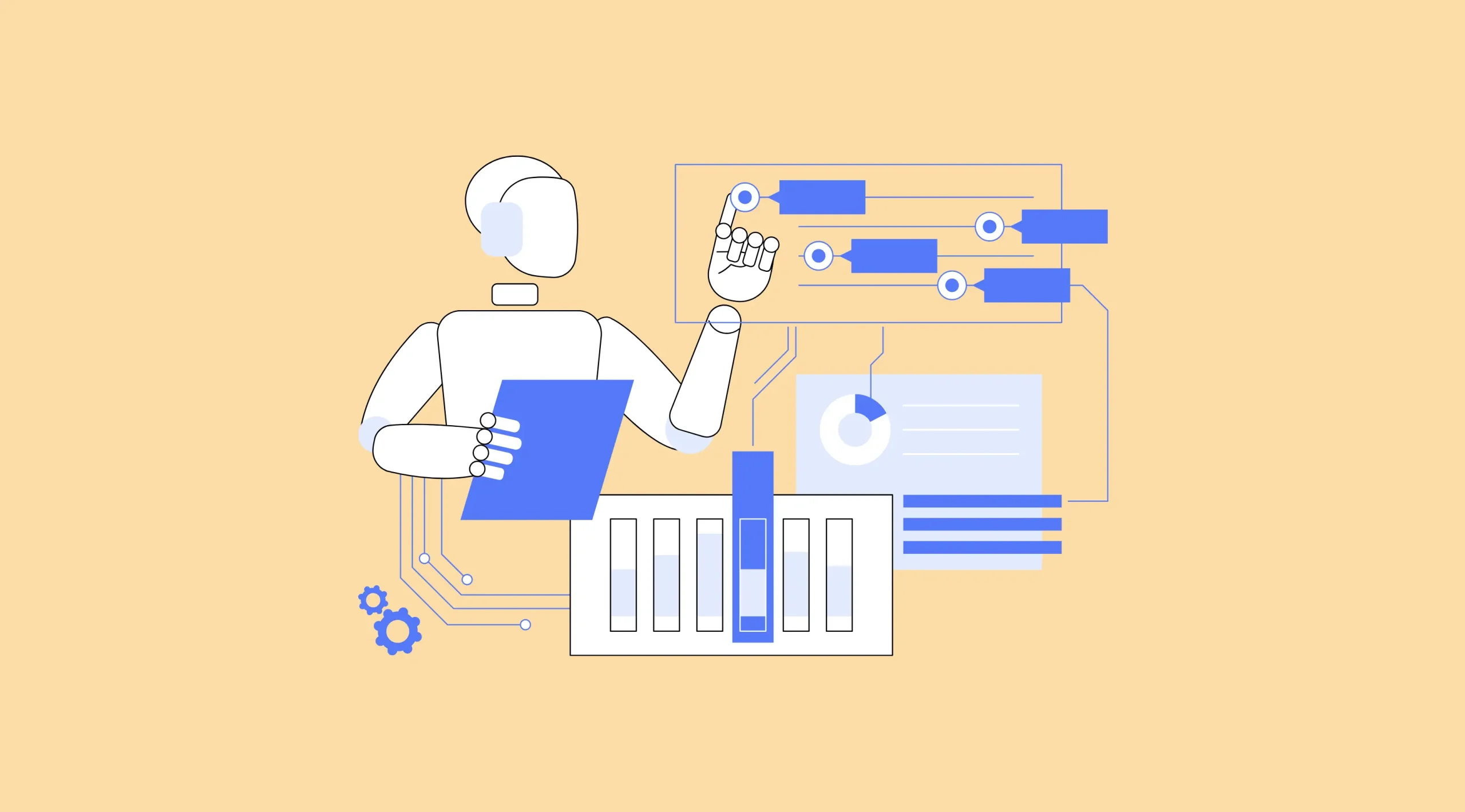
This not only saves time but also improves clarity and accountability. AI-generated notes capture action items, decisions, and deadlines with accuracy, ensuring that nothing is missed. Reports are drafted automatically and distributed to stakeholders, while communication drafts help teams maintain consistent messaging. With AI for B2B managing these tasks, collaboration becomes smoother, faster, and more reliable, even across large, distributed teams.
Supporting innovation with AI-assisted brainstorming, idea prototyping, and research documentation
Innovation is critical in B2B industries, but brainstorming and idea development can be slow without the right tools. Generative AI for B2B supports innovation by generating ideas, suggesting prototypes, and documenting research findings. AI can analyze market data, identify gaps in existing solutions, and propose novel approaches that teams may not have considered.
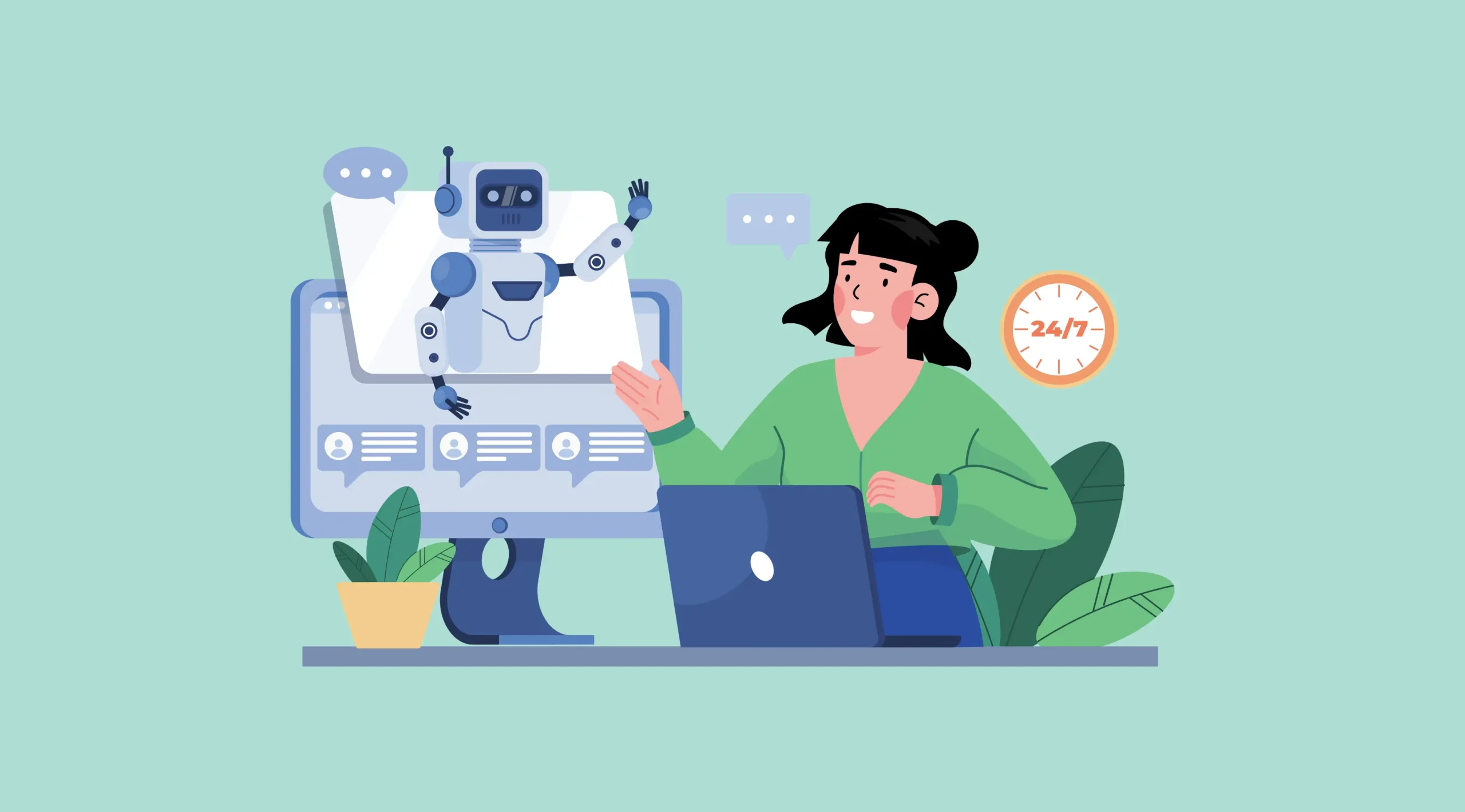
In addition, generative AI can rapidly create prototypes for new processes or products, providing a starting point for experimentation. It can also draft detailed research documentation, ensuring that knowledge is captured and shared across the organization. By supporting every stage of the innovation process, AI for B2B empowers enterprises to stay ahead of competitors and continuously evolve.
Conclusion
Part 1 of AI for B2B Unlocked provides the conceptual and operational foundation for how intelligence powers today’s most advanced business ecosystems. It introduces AI not as a technological add-on but as a central framework for optimizing relationships, workflows, and outcomes in the B2B world. By showcasing how AI transforms everything from data-driven marketing to predictive supply chain planning, it demonstrates that intelligence is now the foundation of agility, resilience, and growth.
However, understanding principles alone is not enough—success depends on execution. In Part 2: Real-World Case Studies & Success Stories, we’ll see how global brands have already turned AI concepts into measurable ROI, revolutionizing logistics, sales enablement, and customer management. Finally, Part 3: Strategy, Challenges, and Future Trends explores how organizations can build scalable AI roadmaps, overcome cultural and ethical barriers, and prepare for the next decade of intelligent enterprise transformation.


